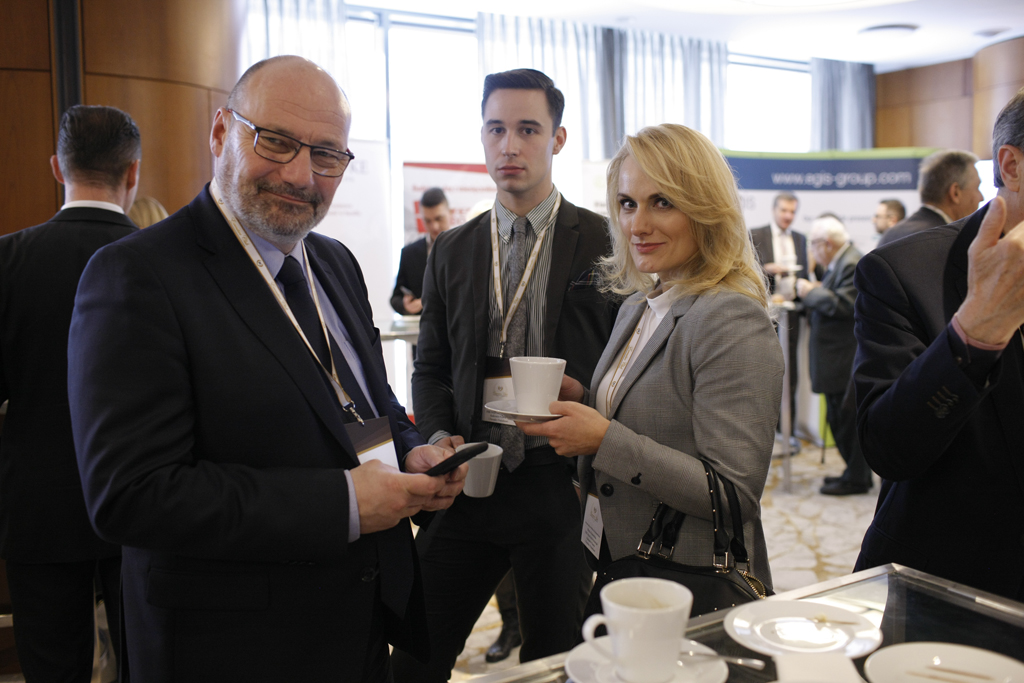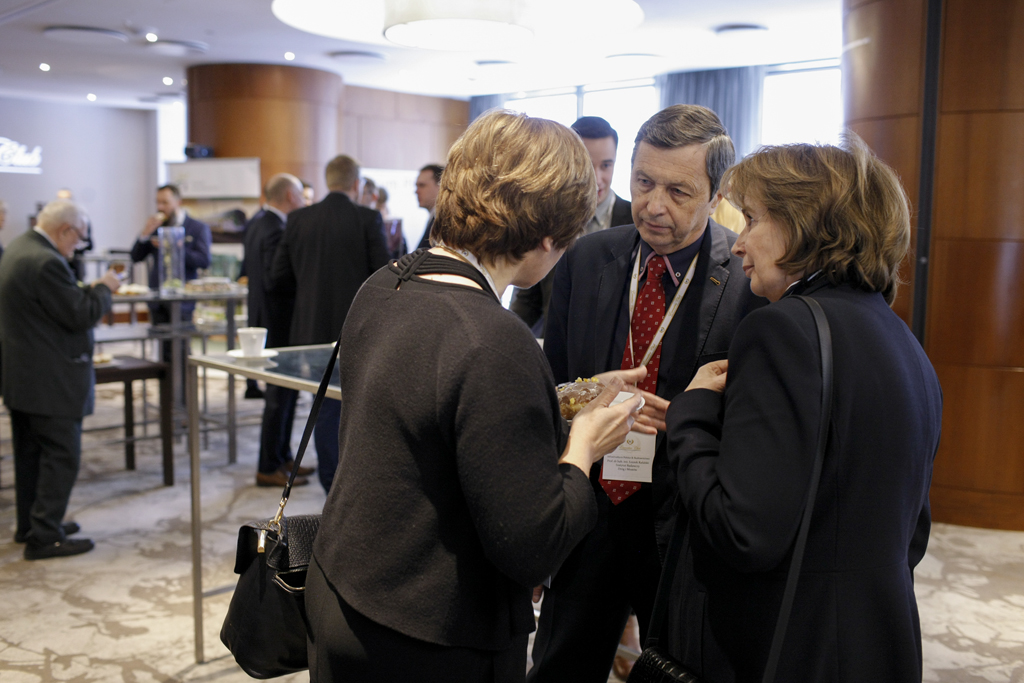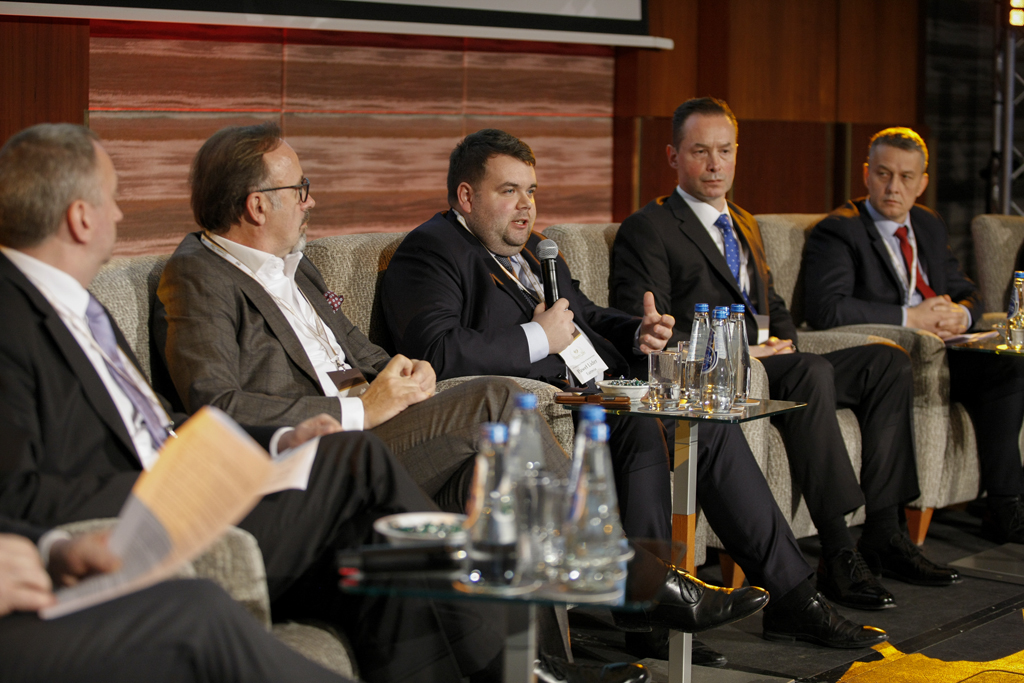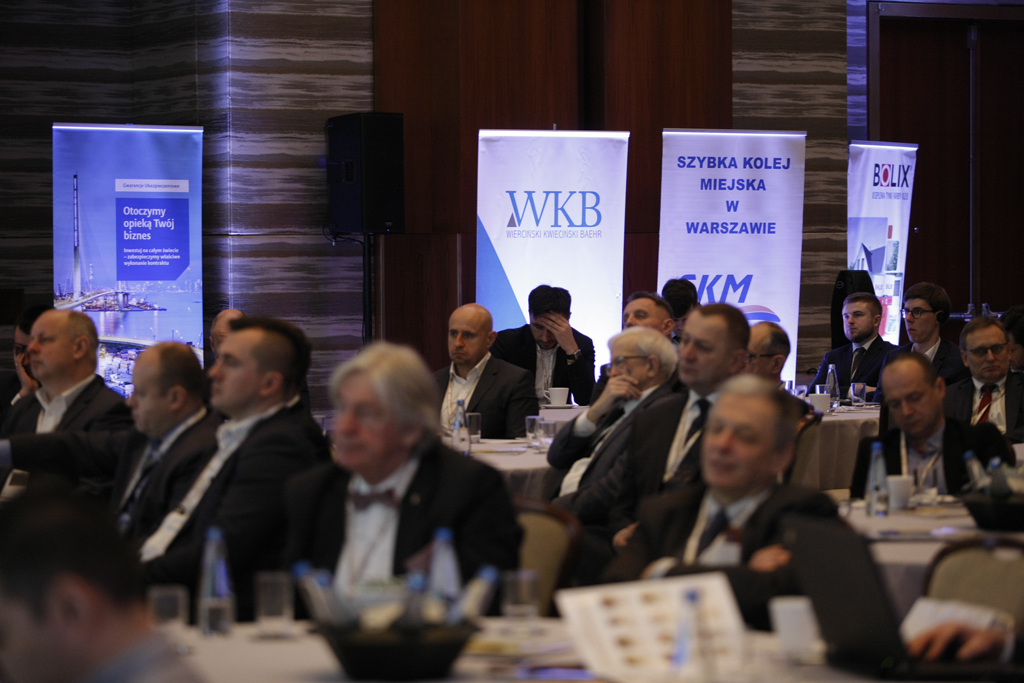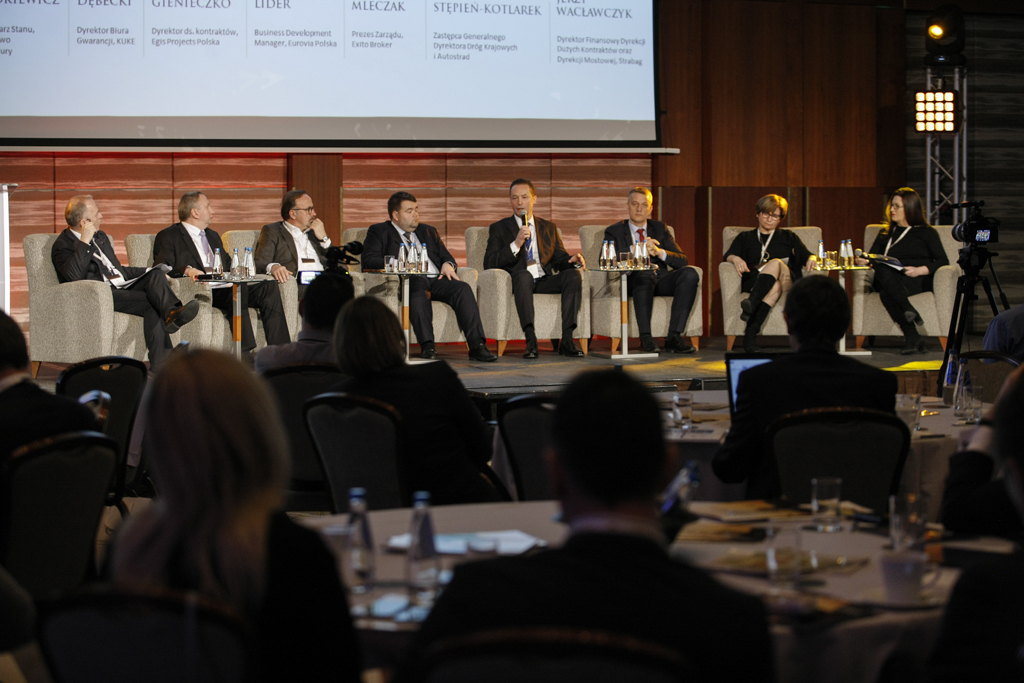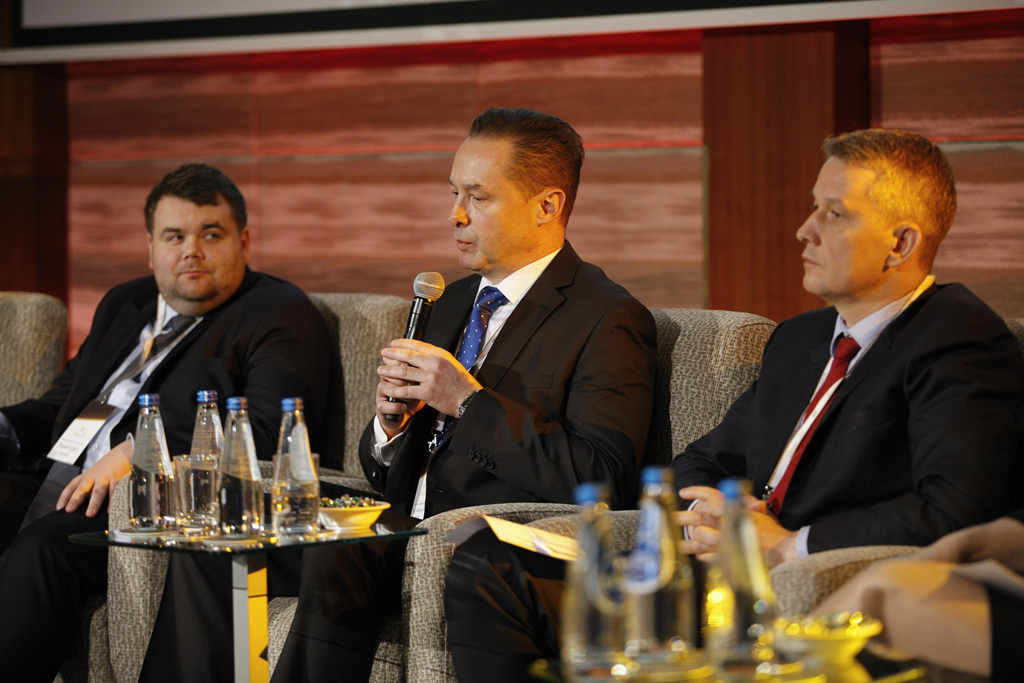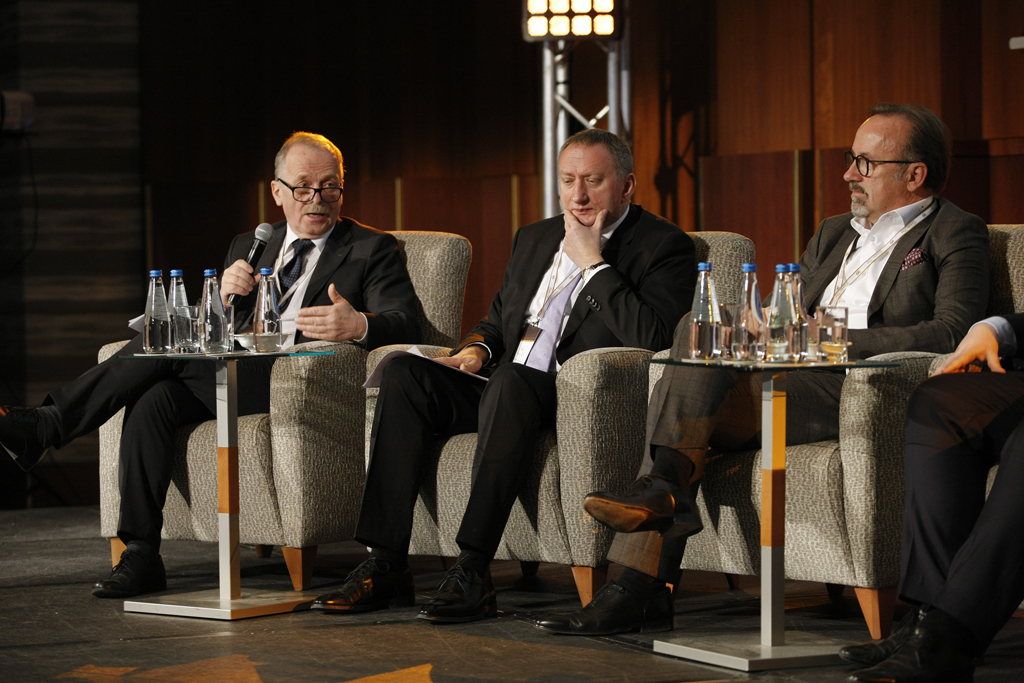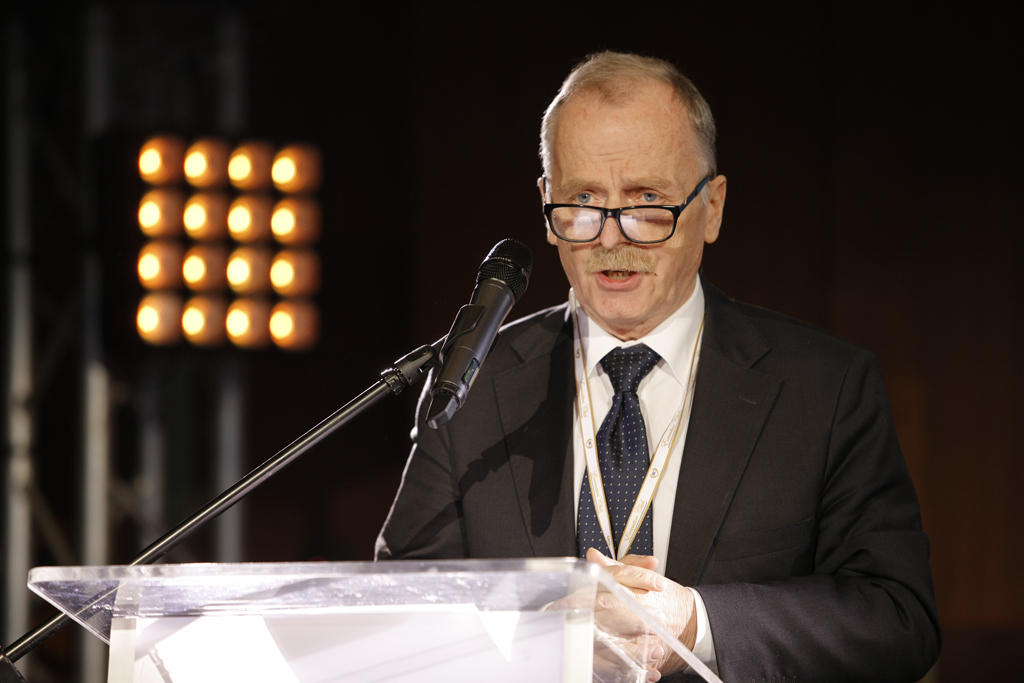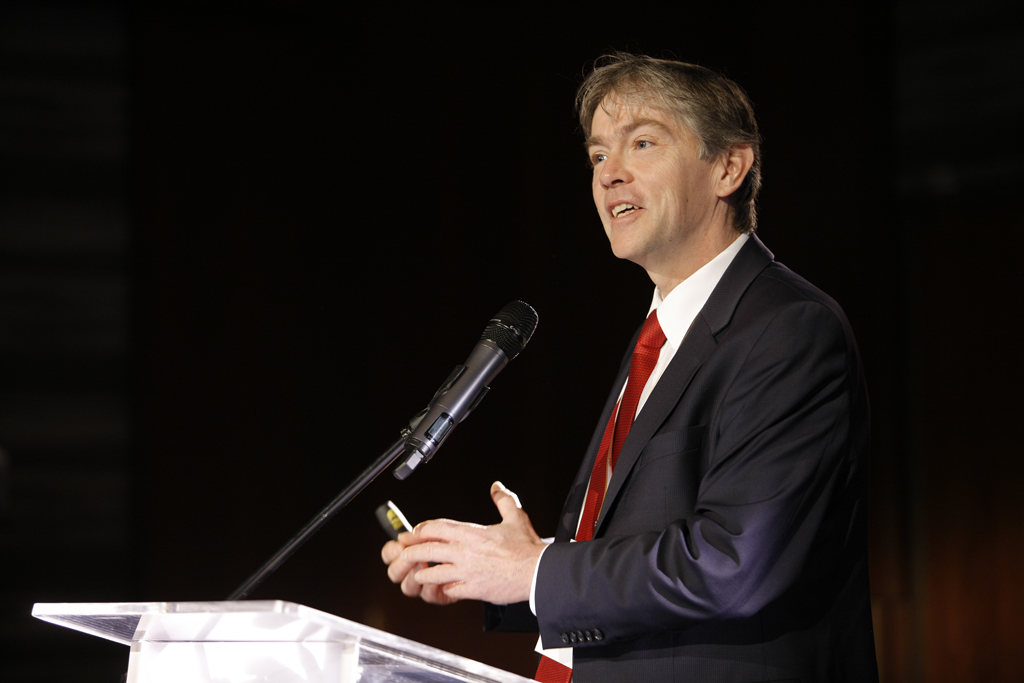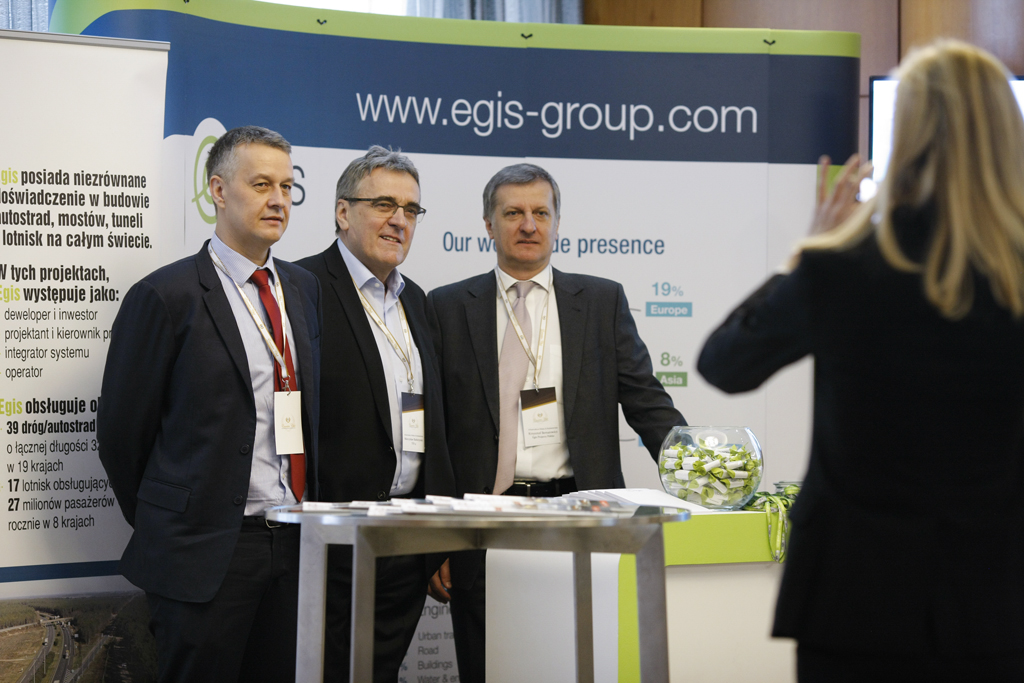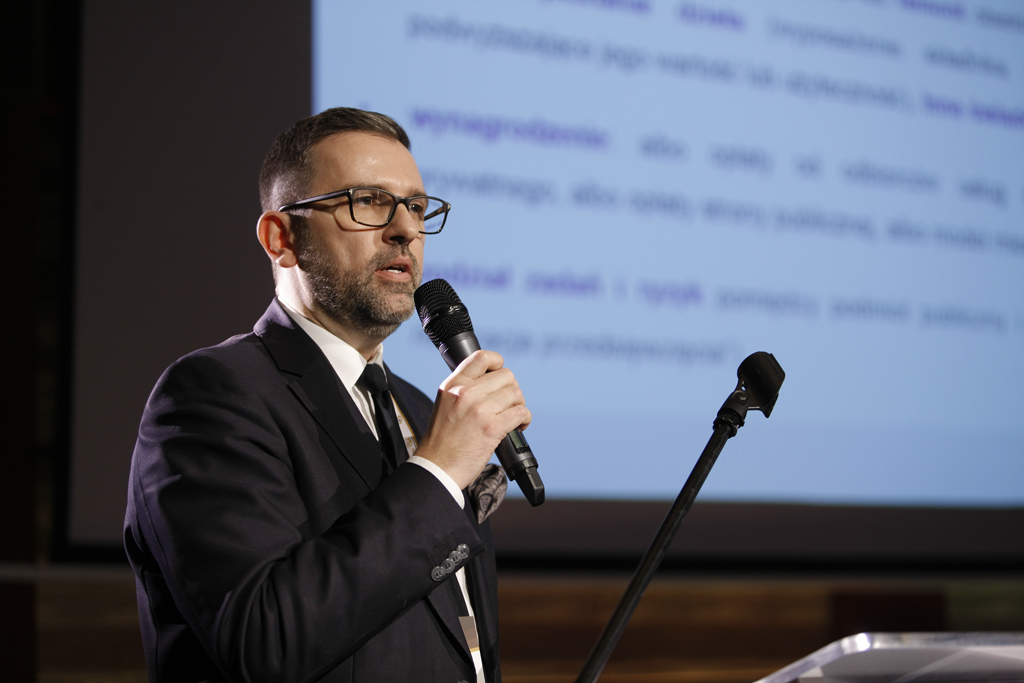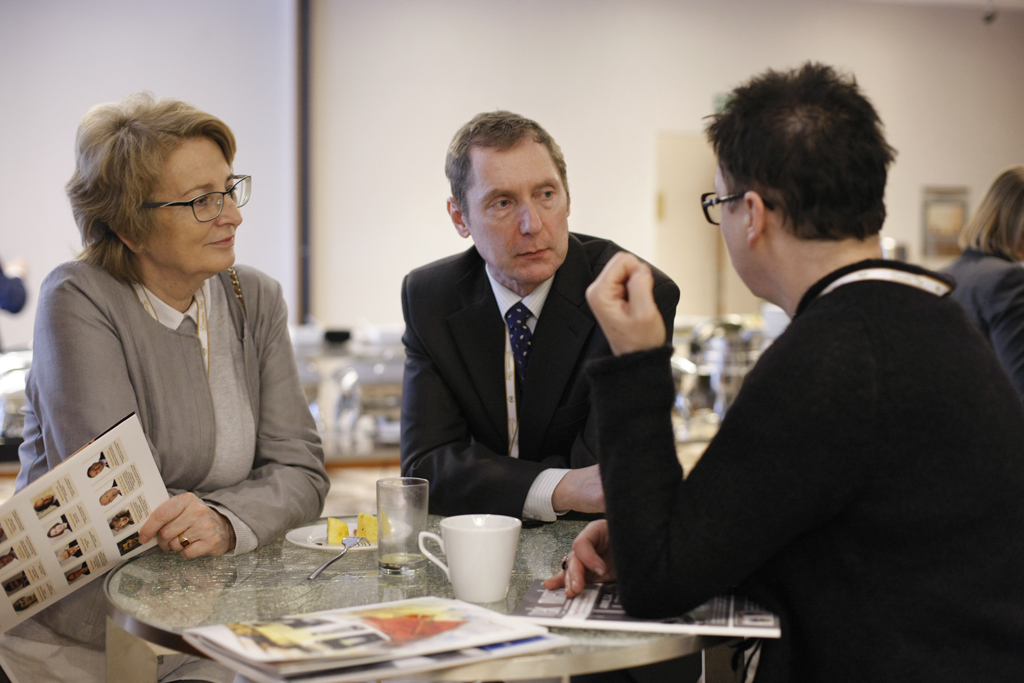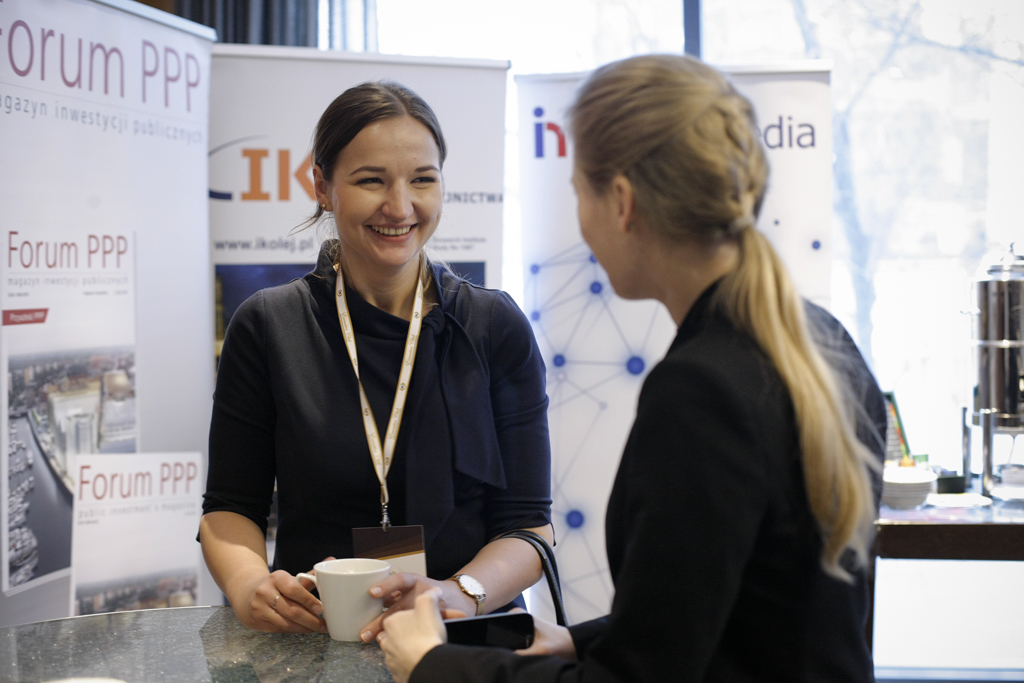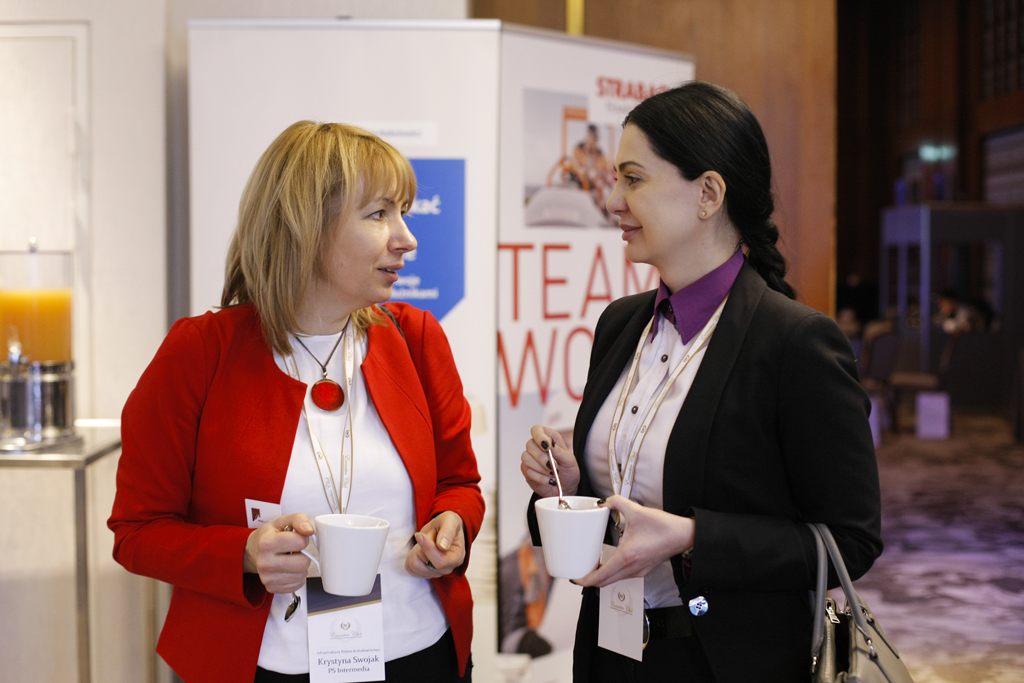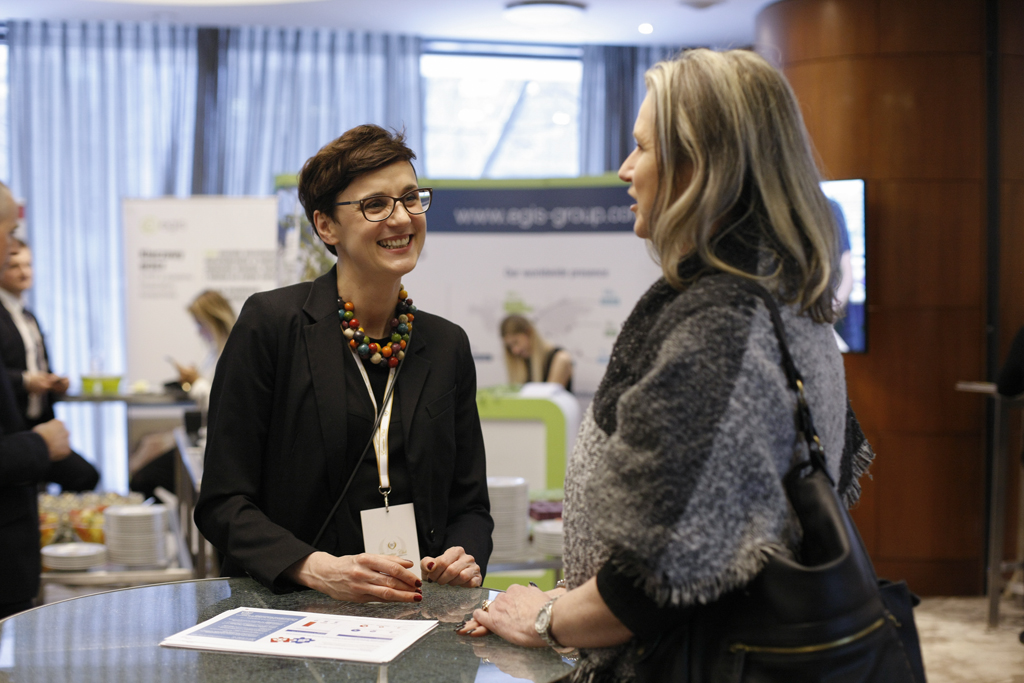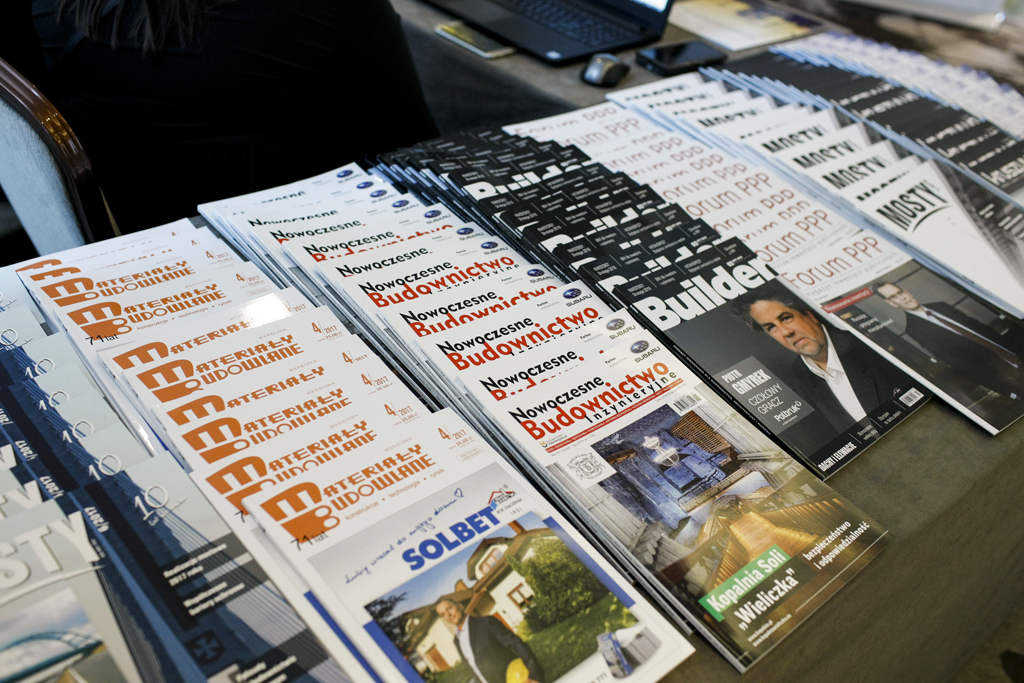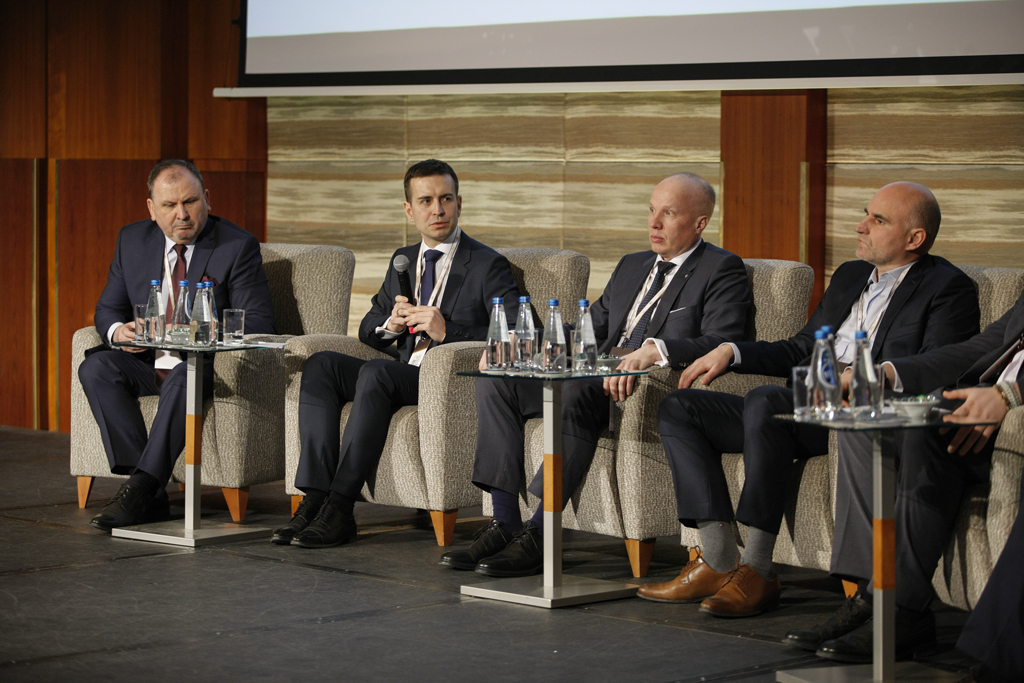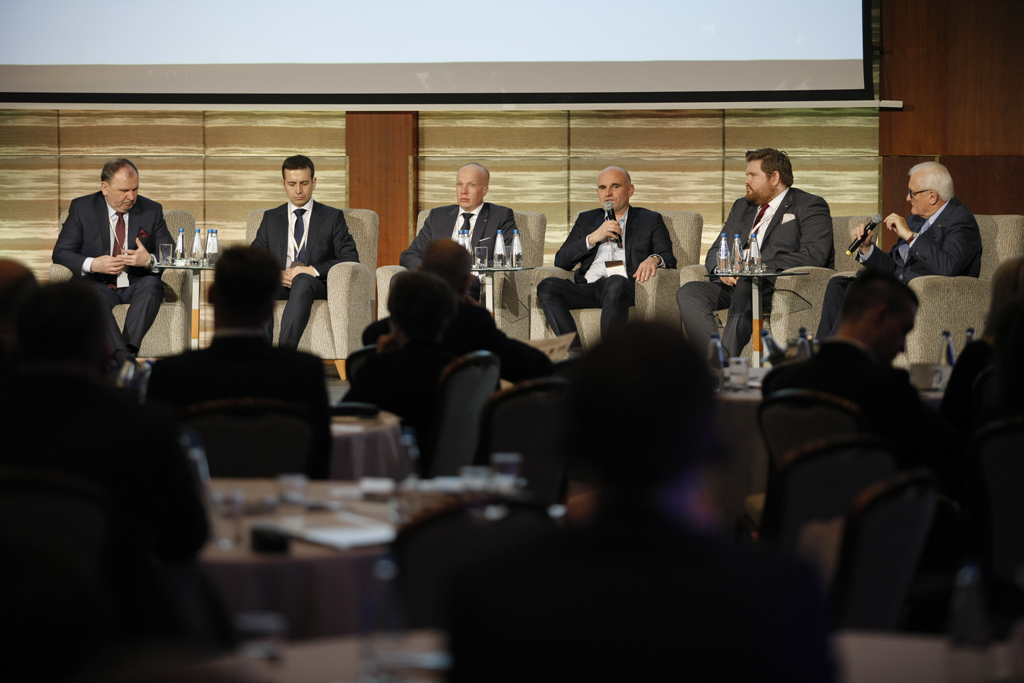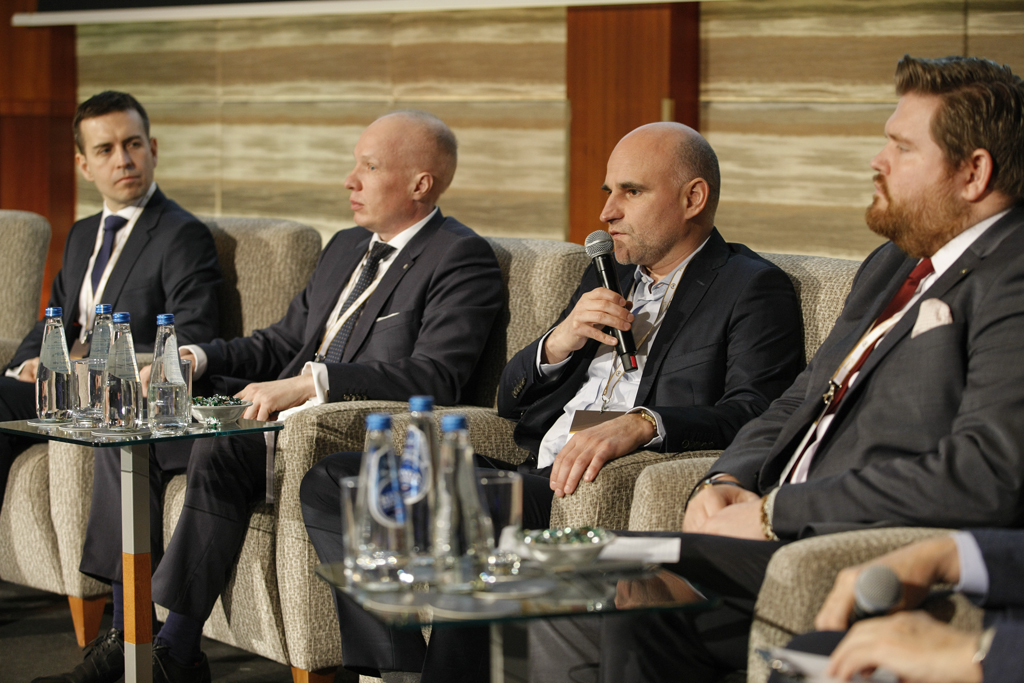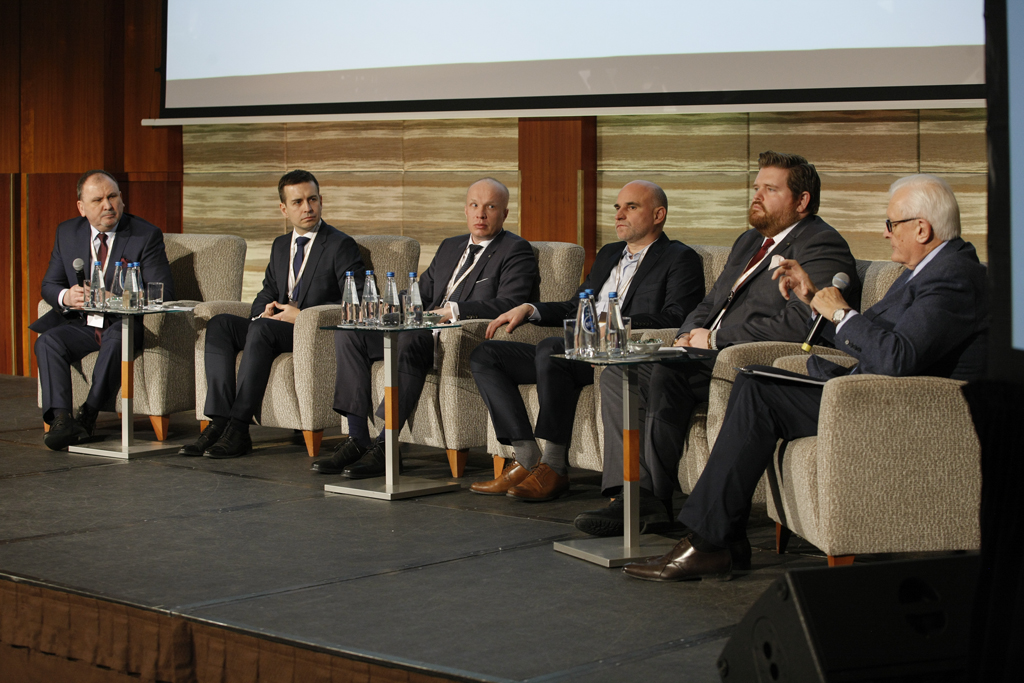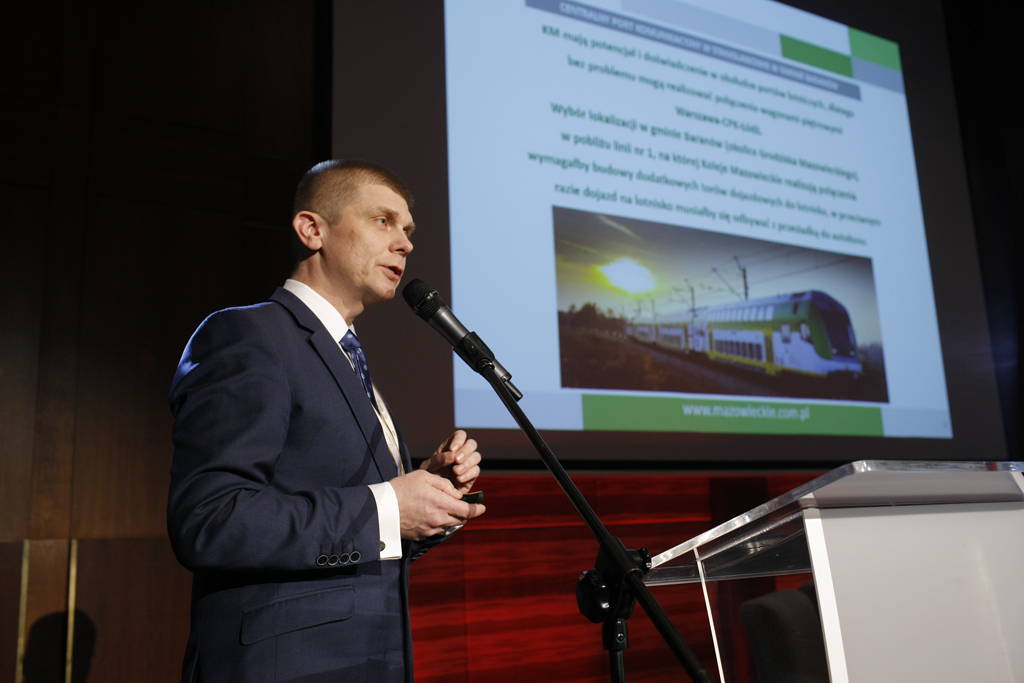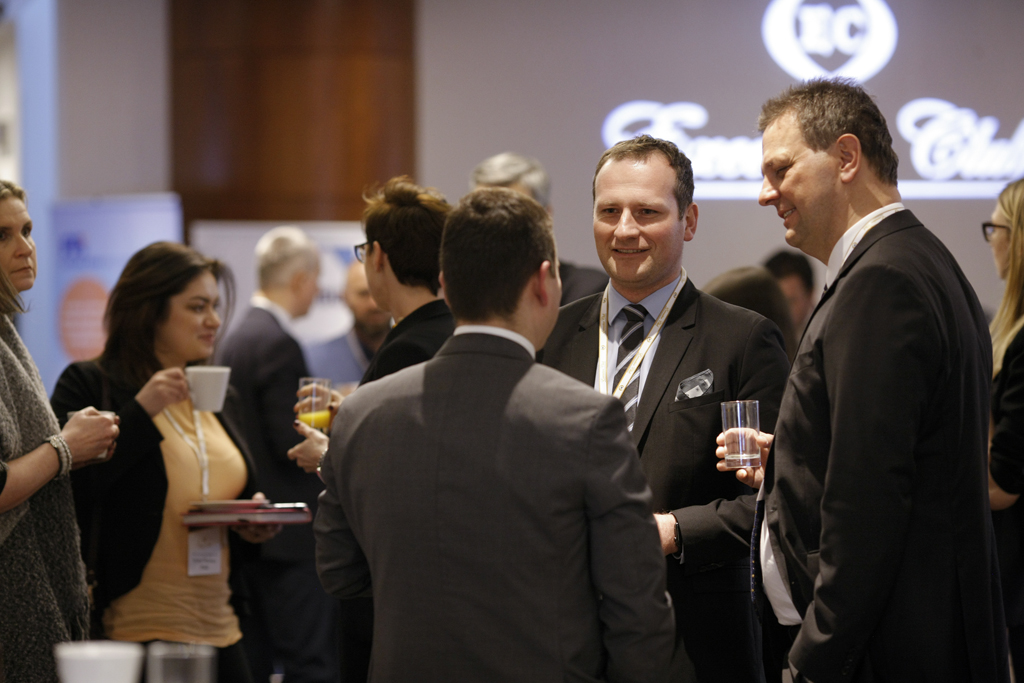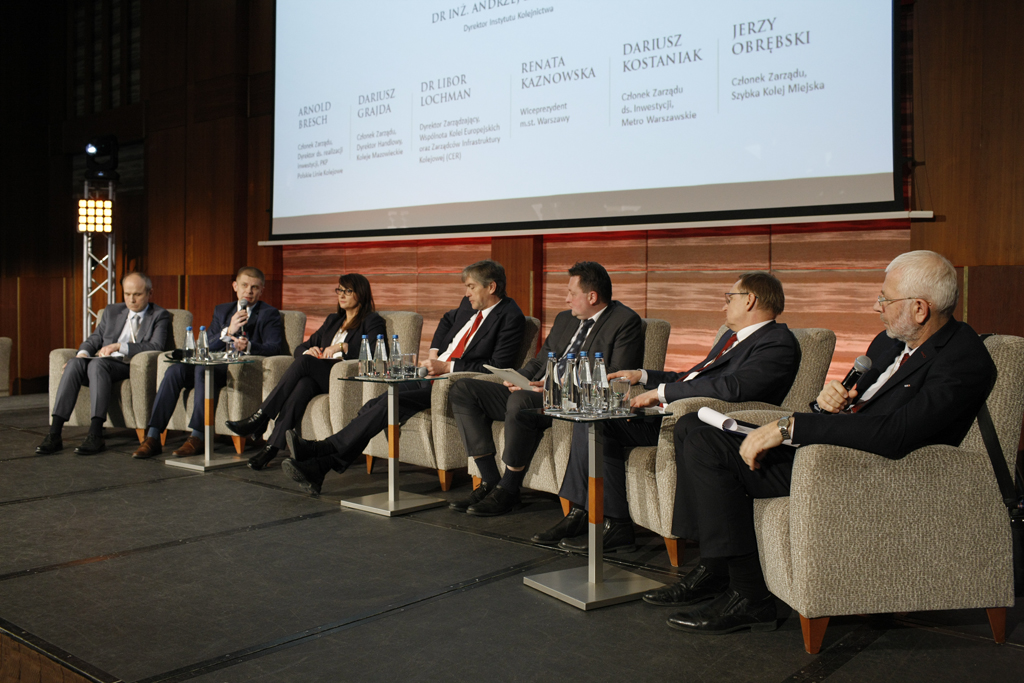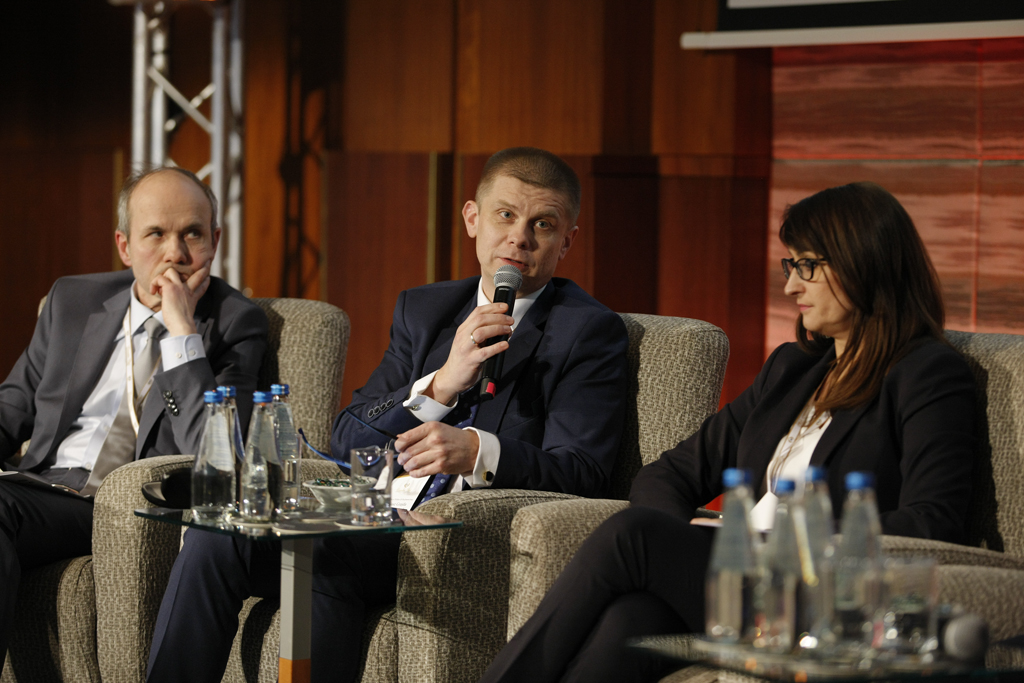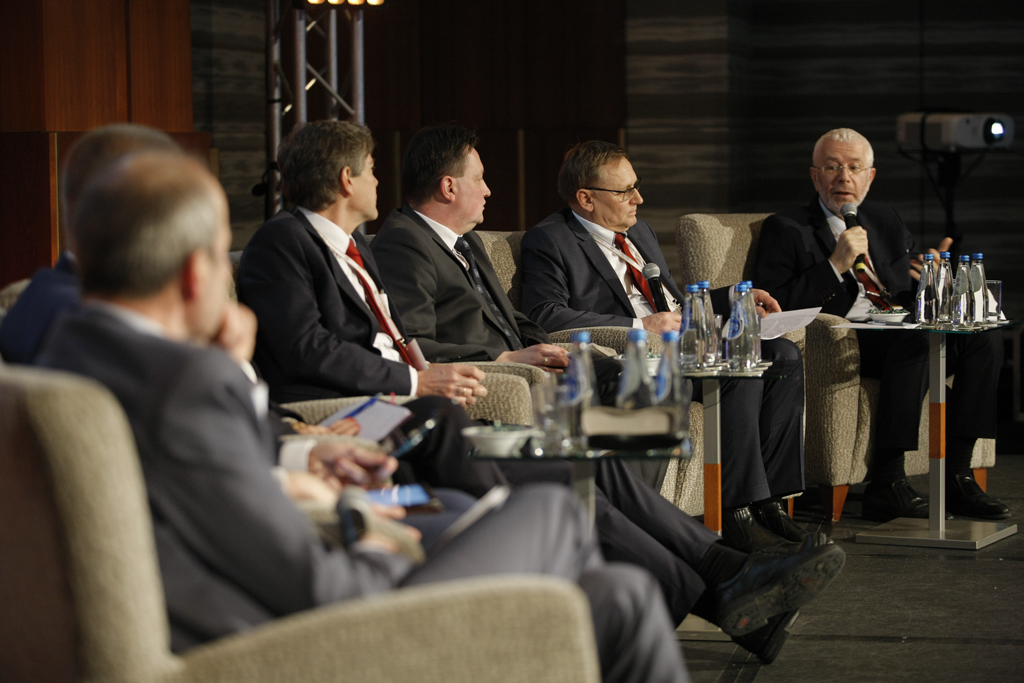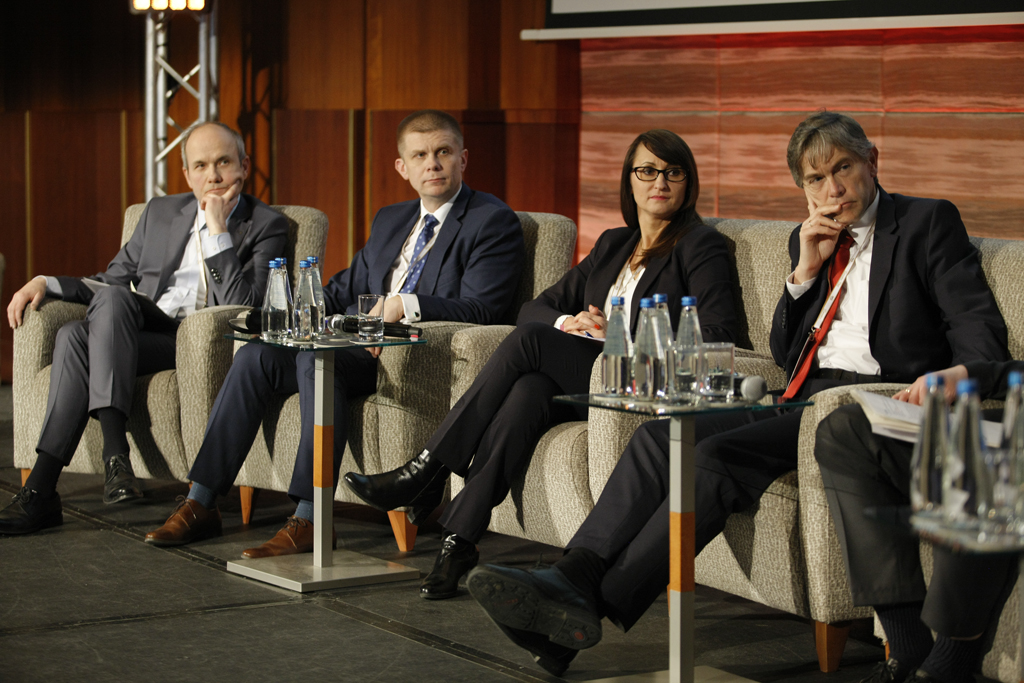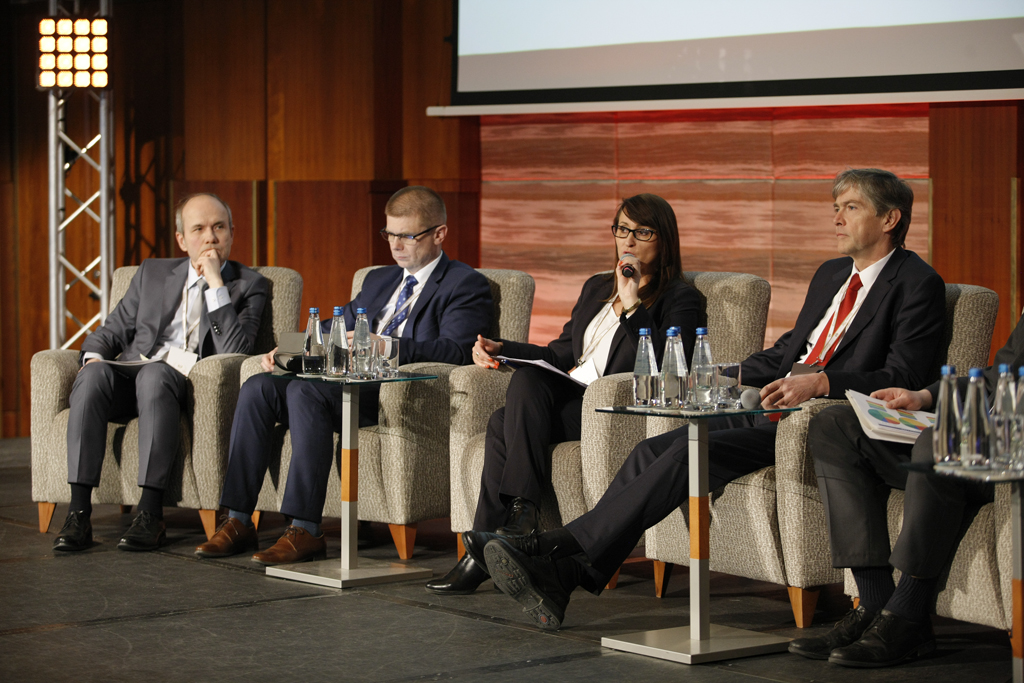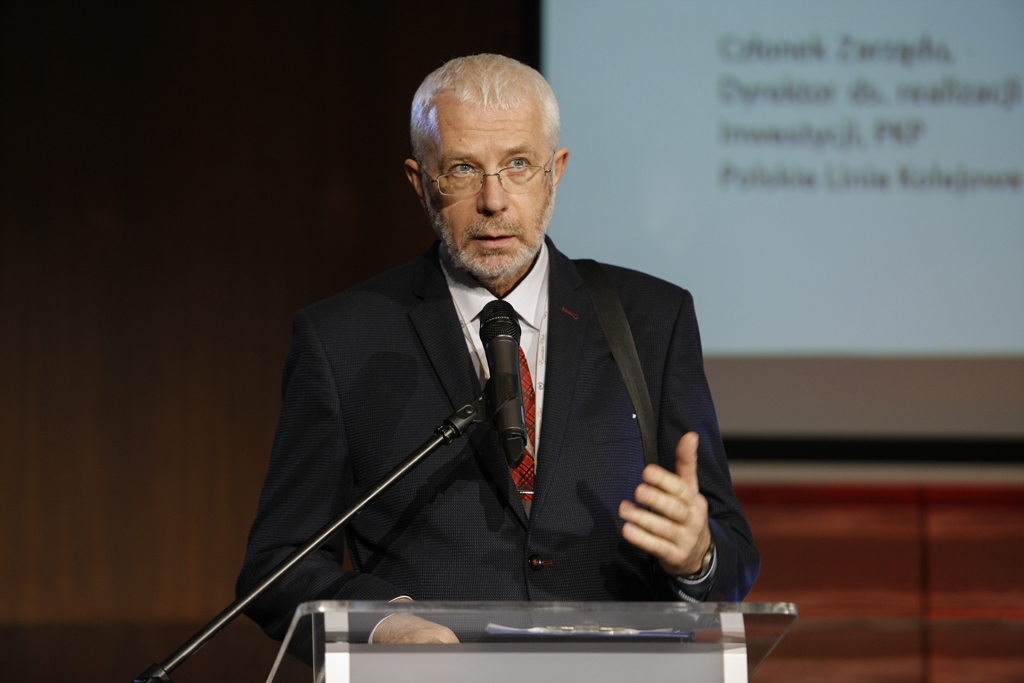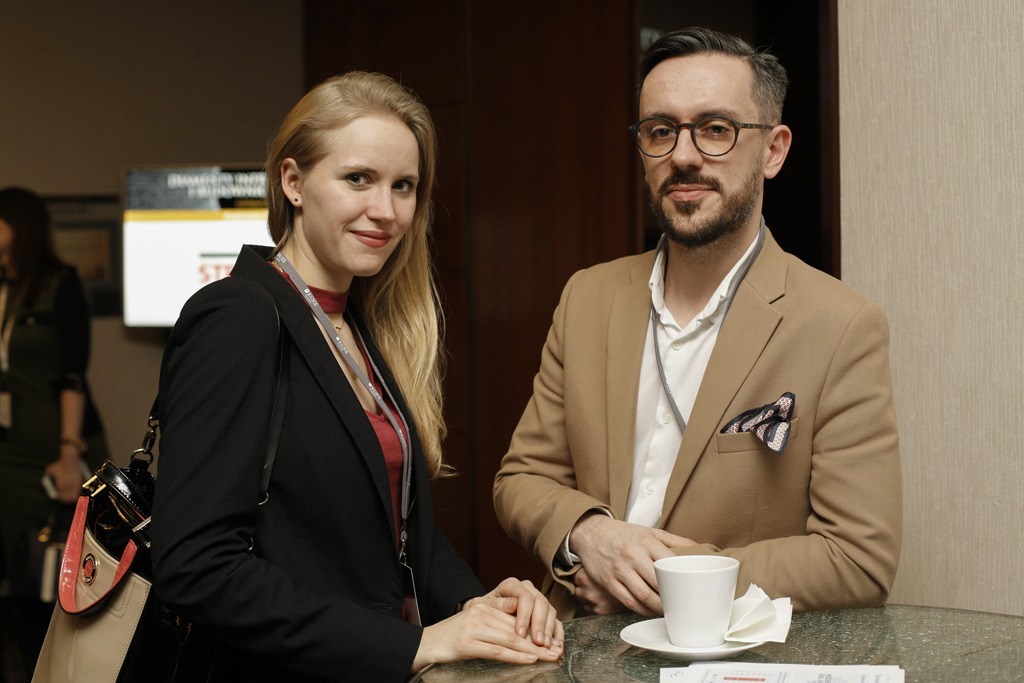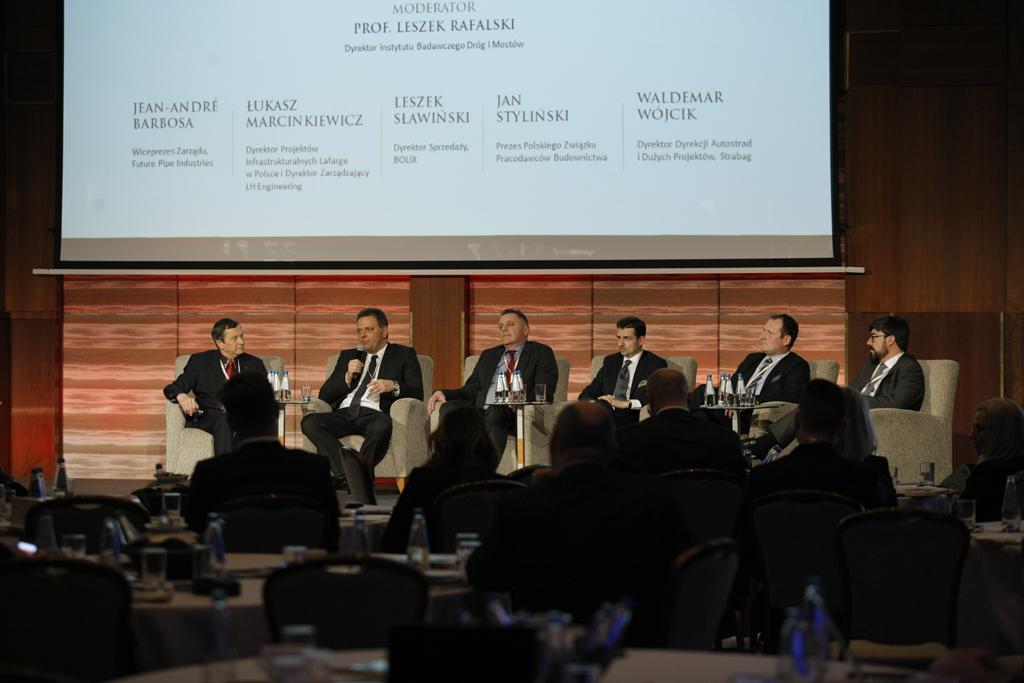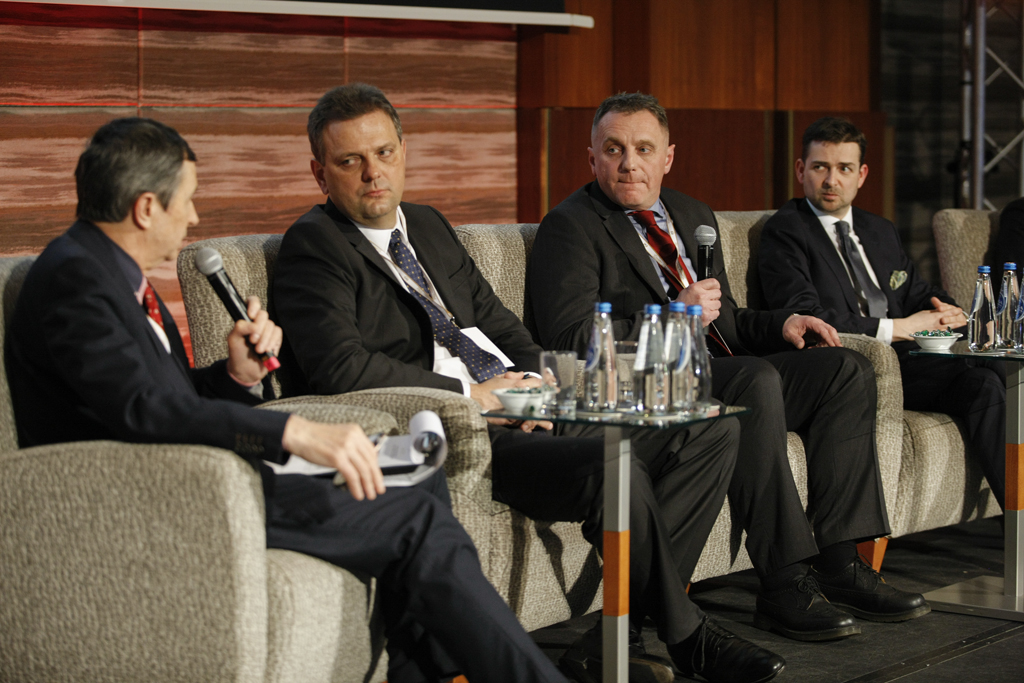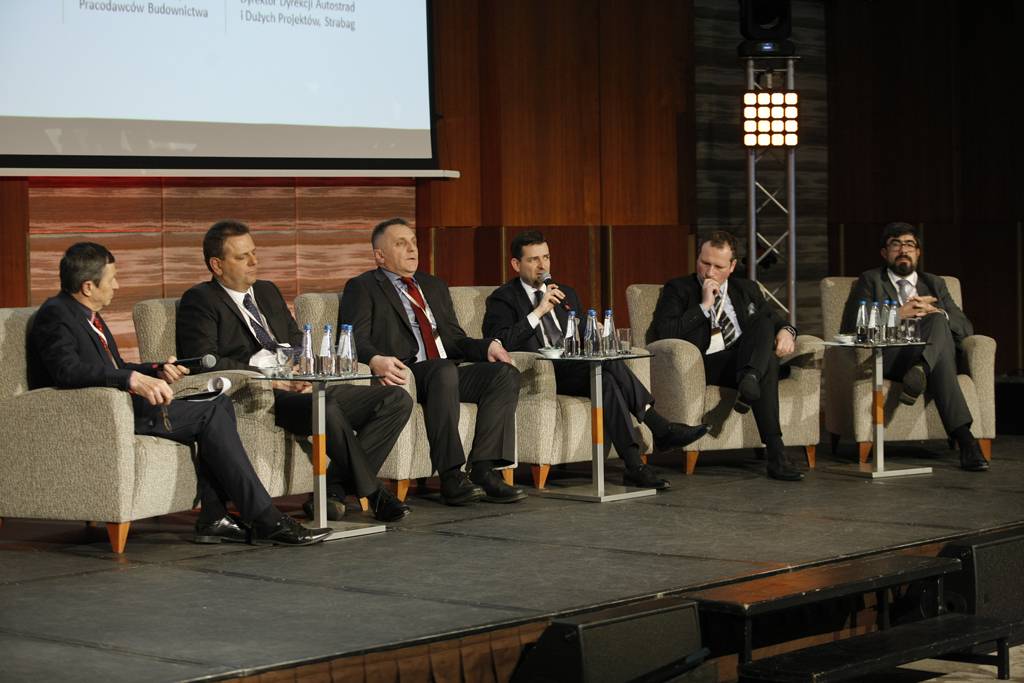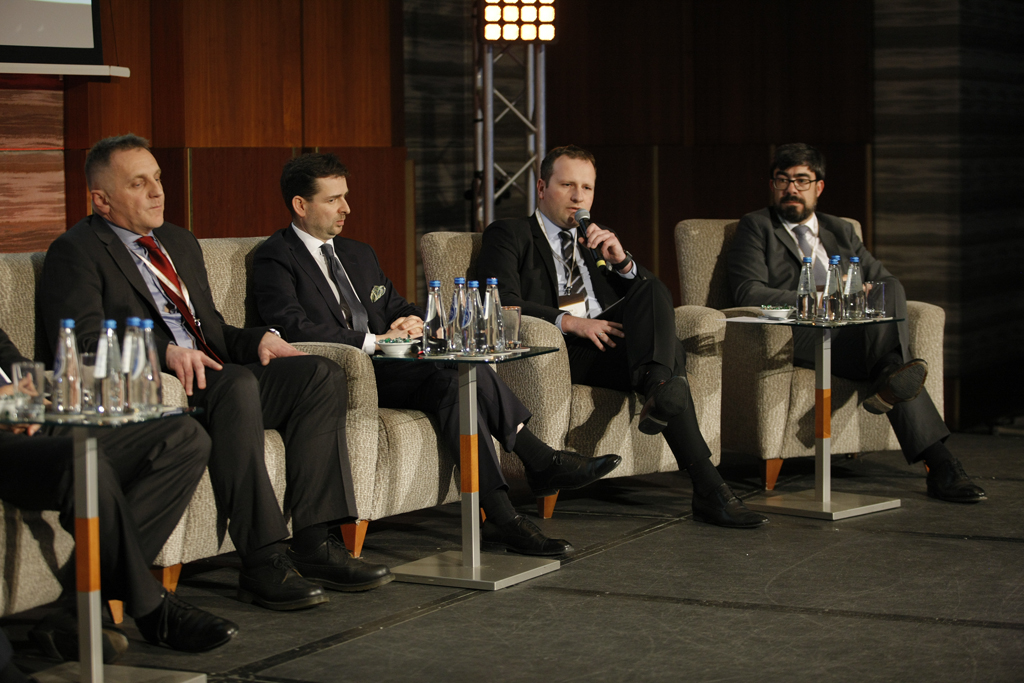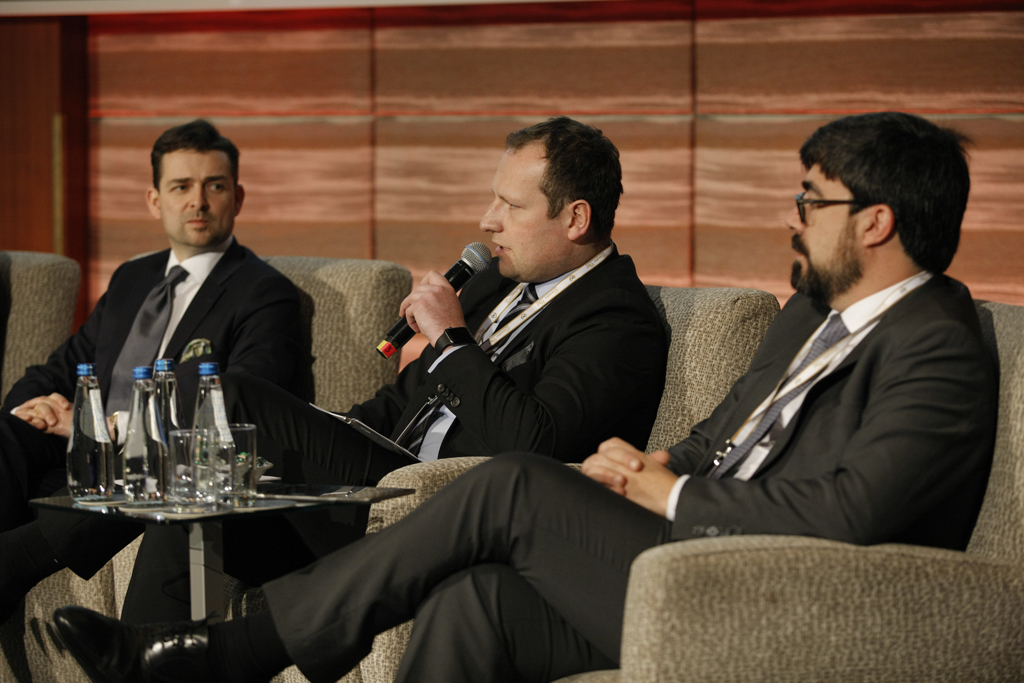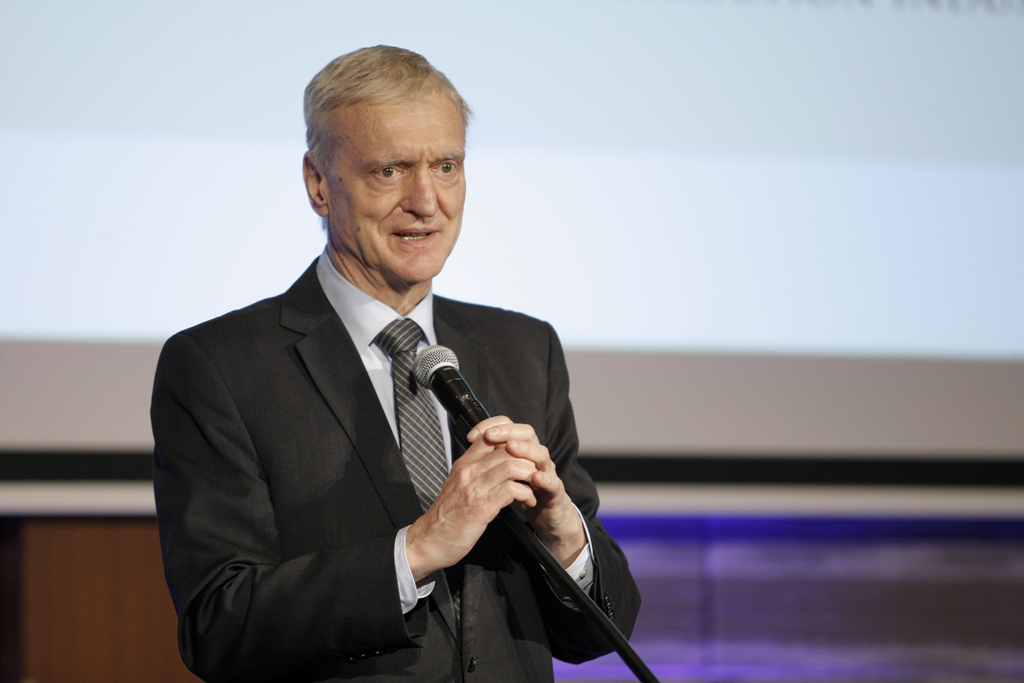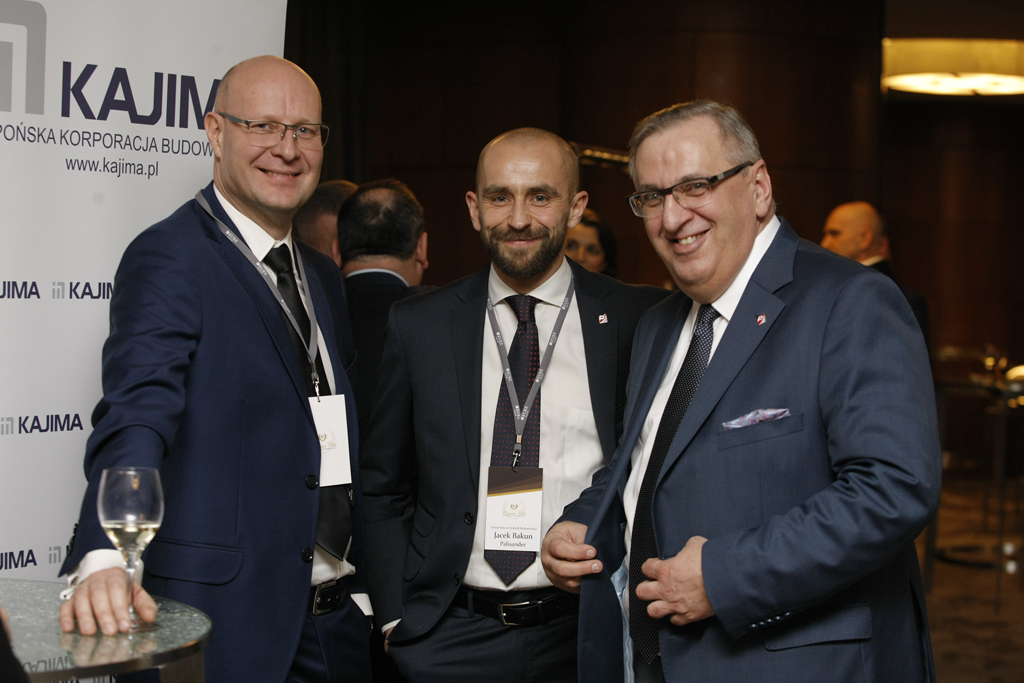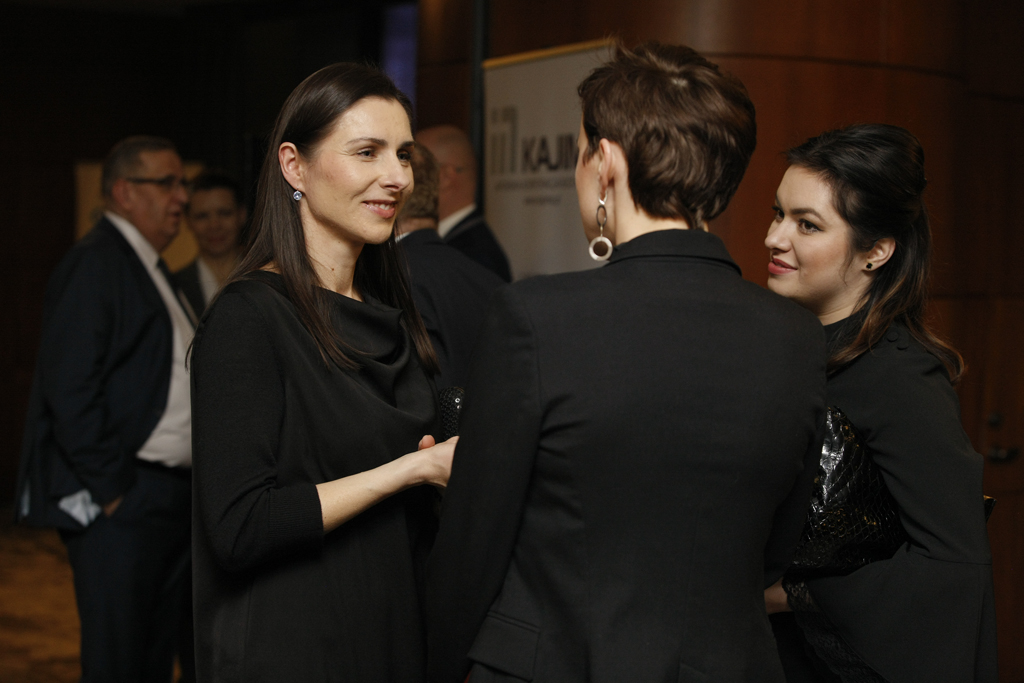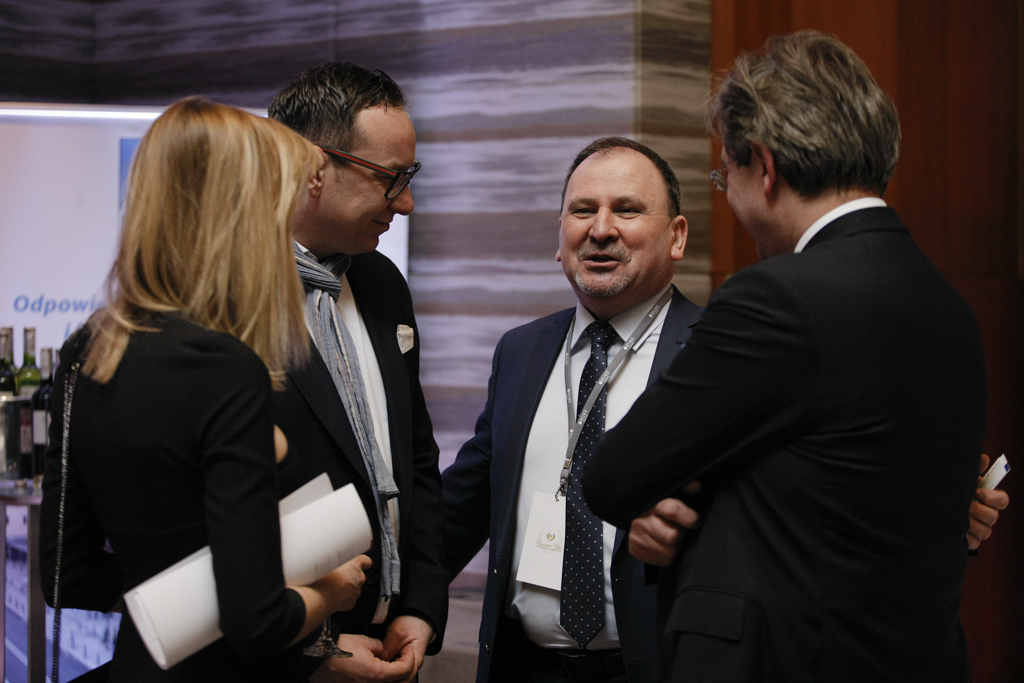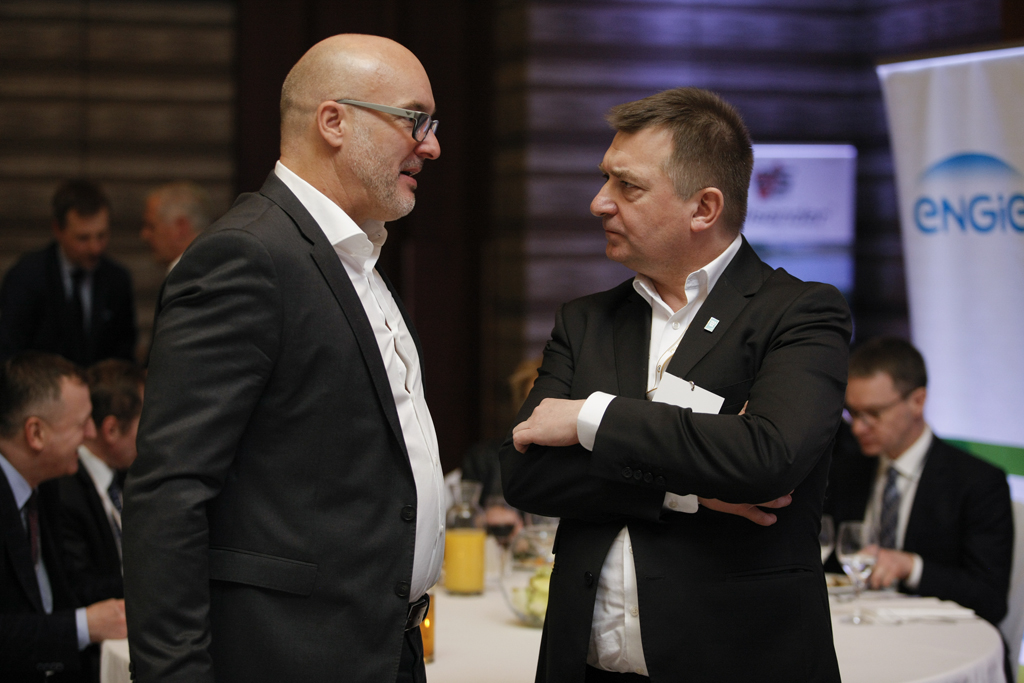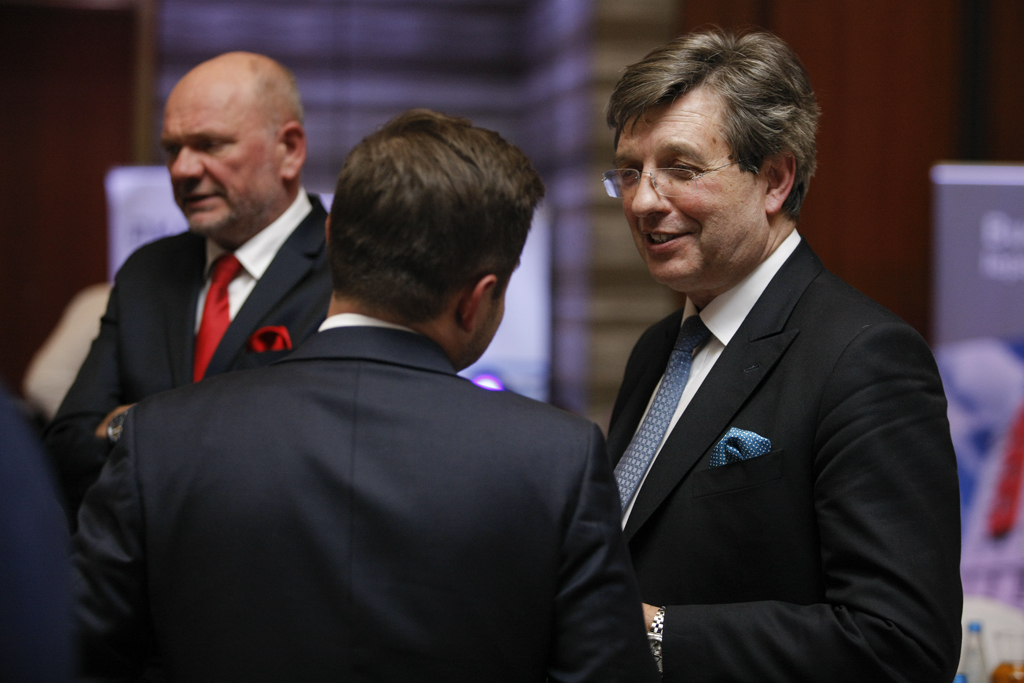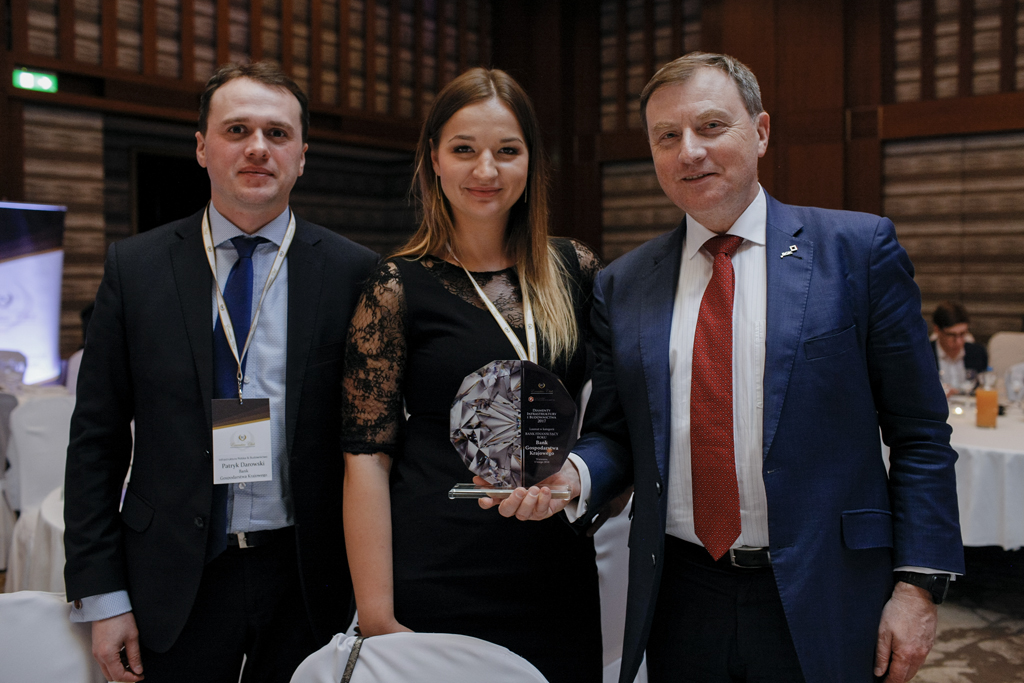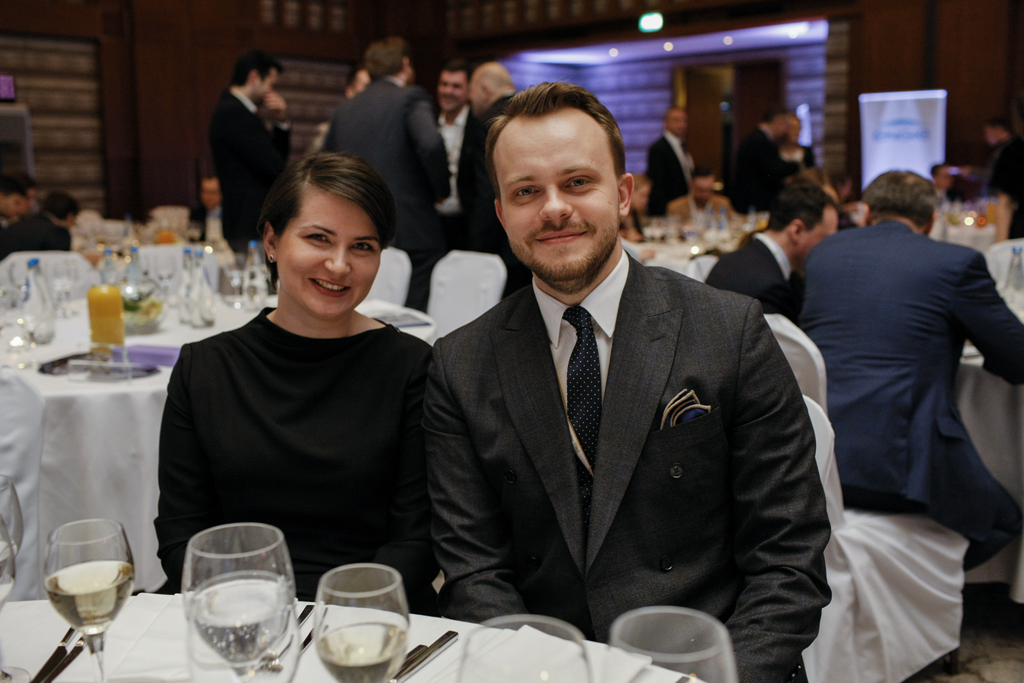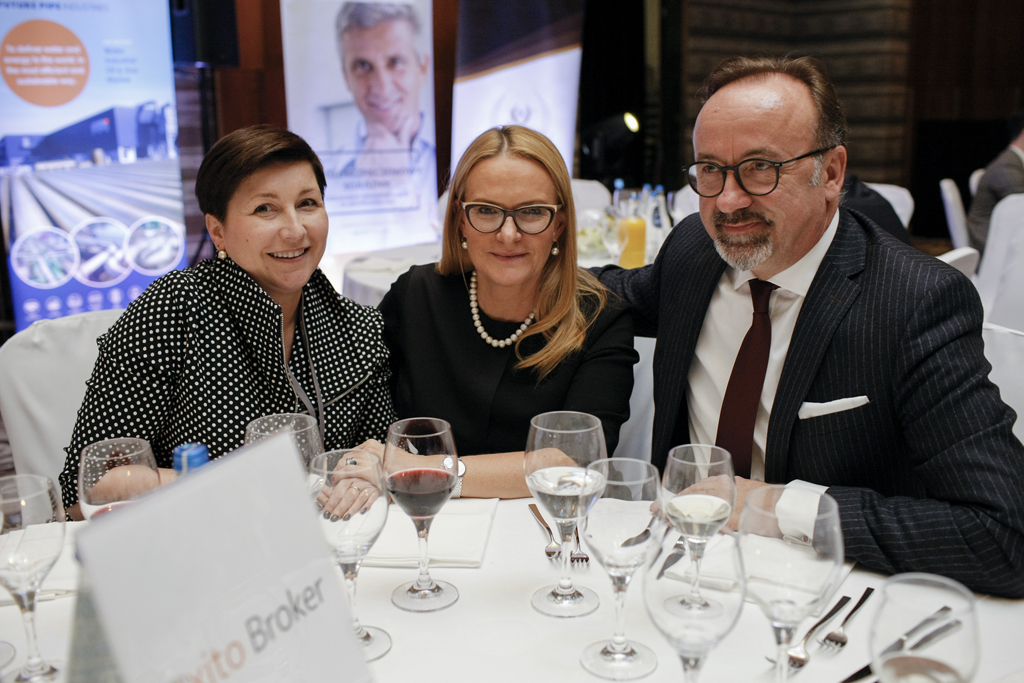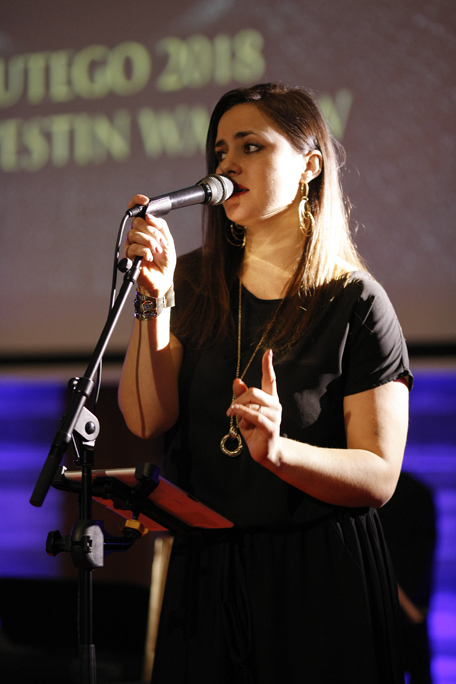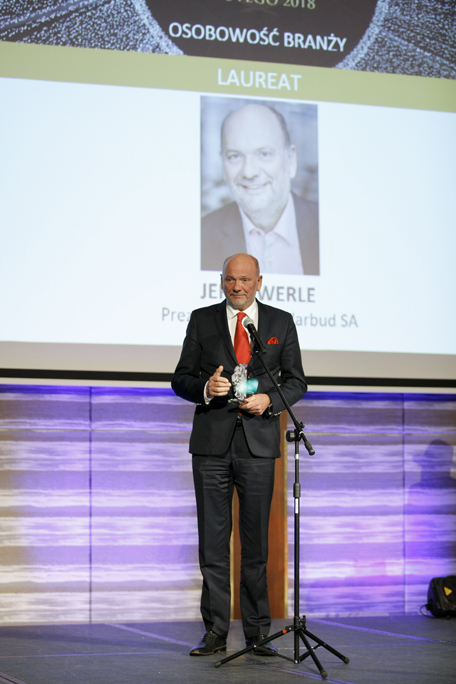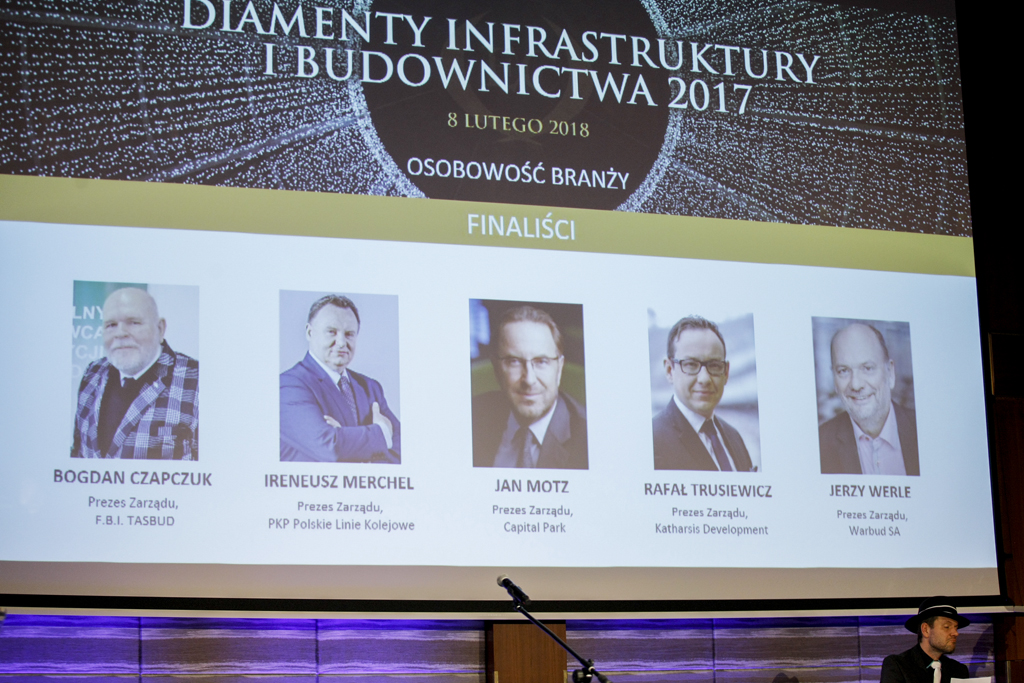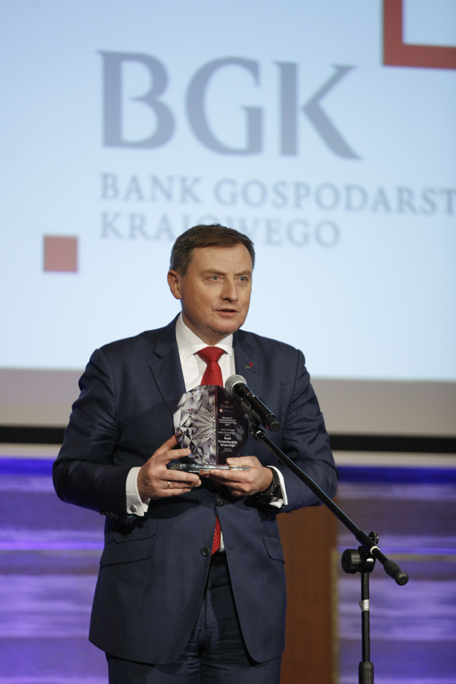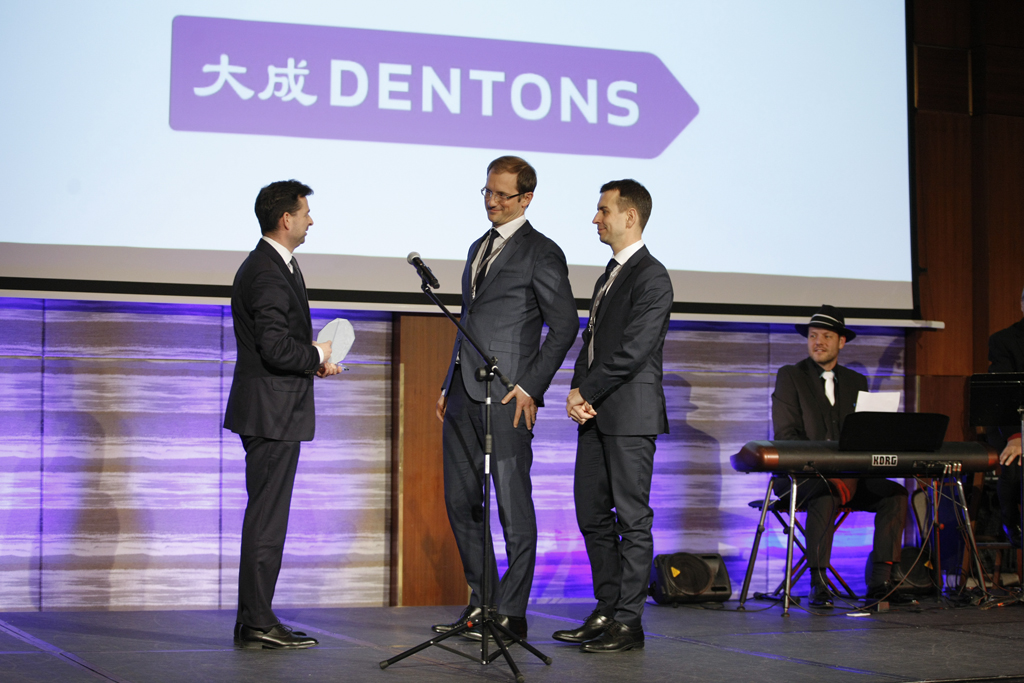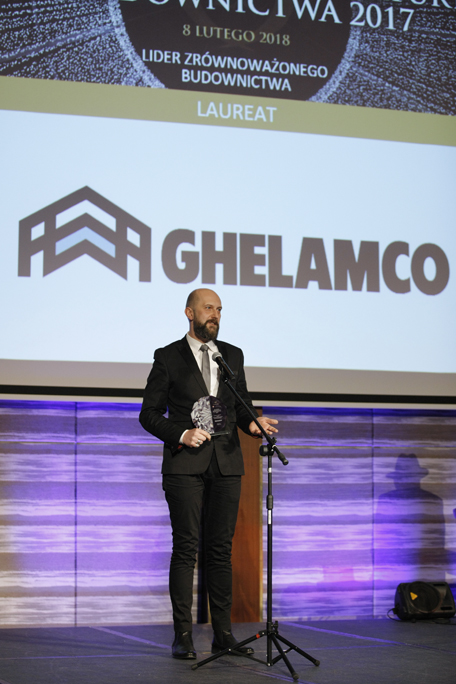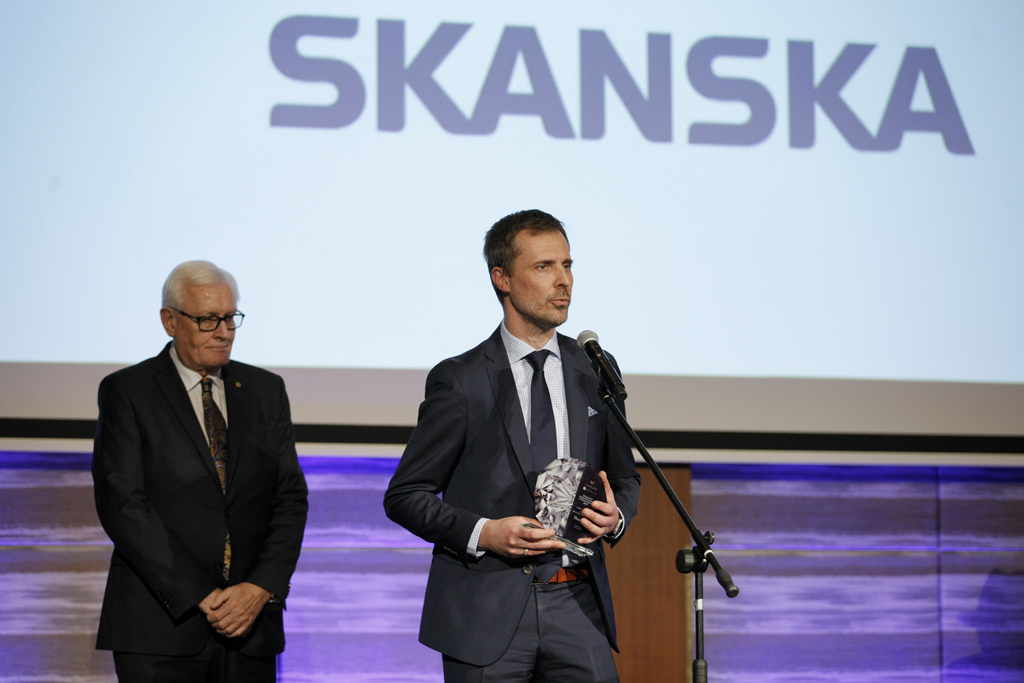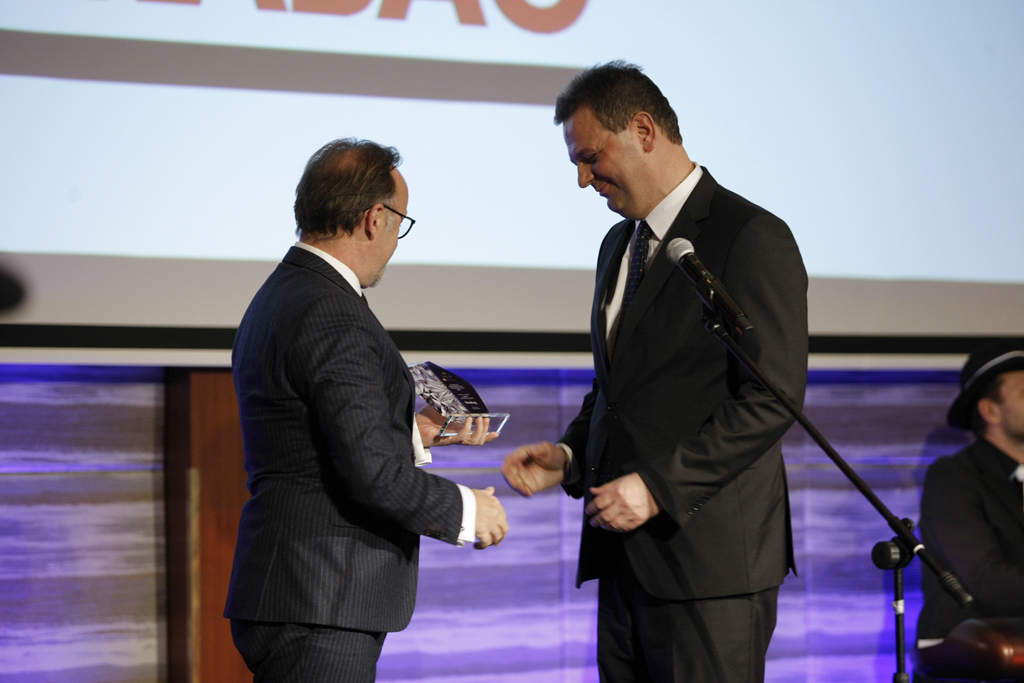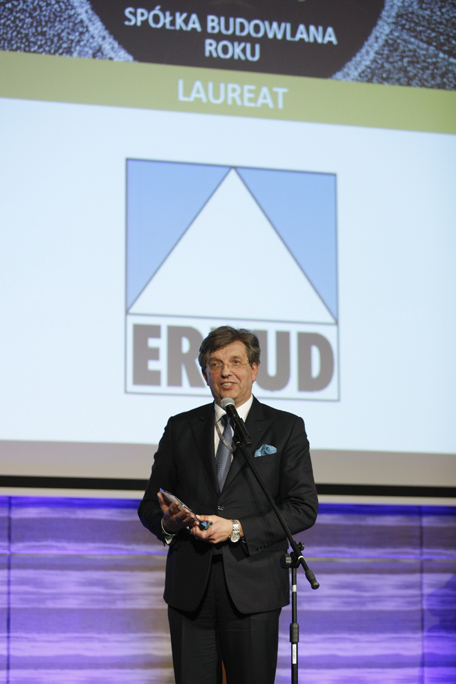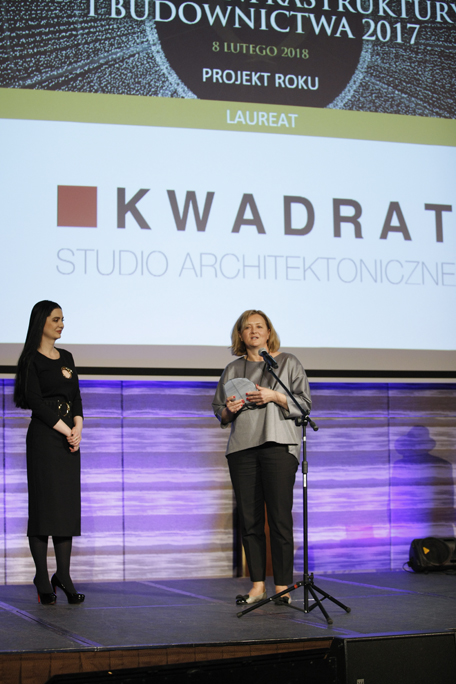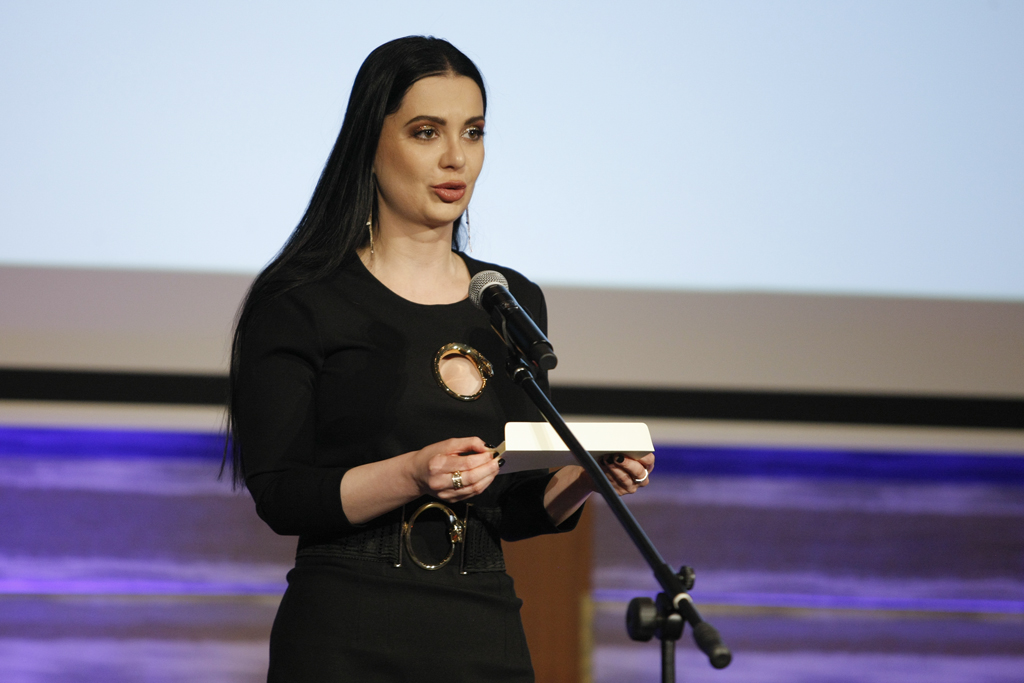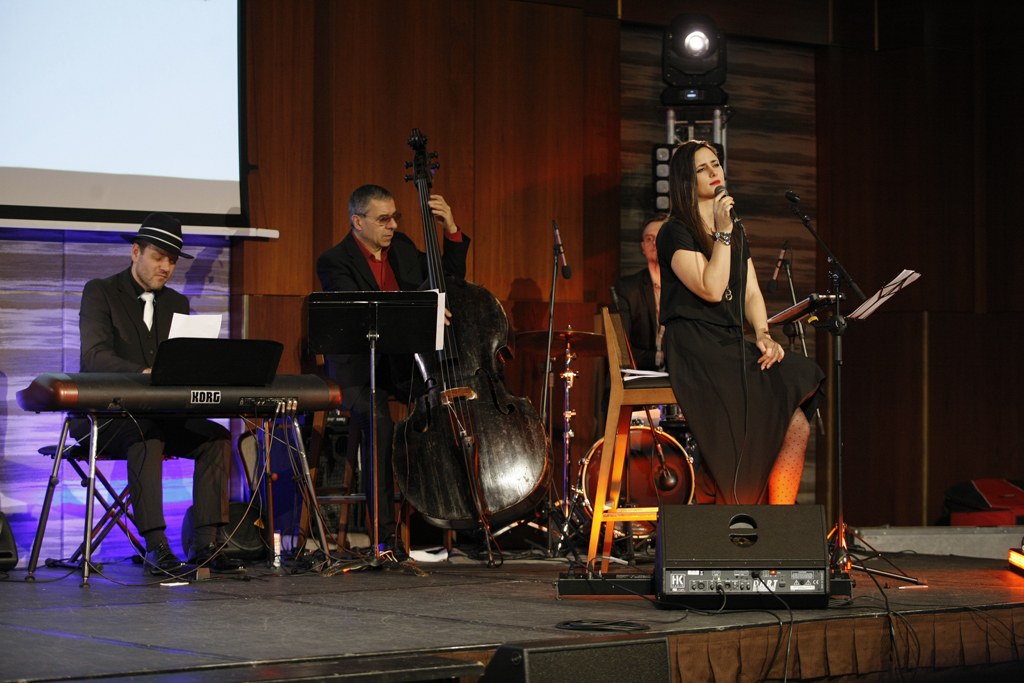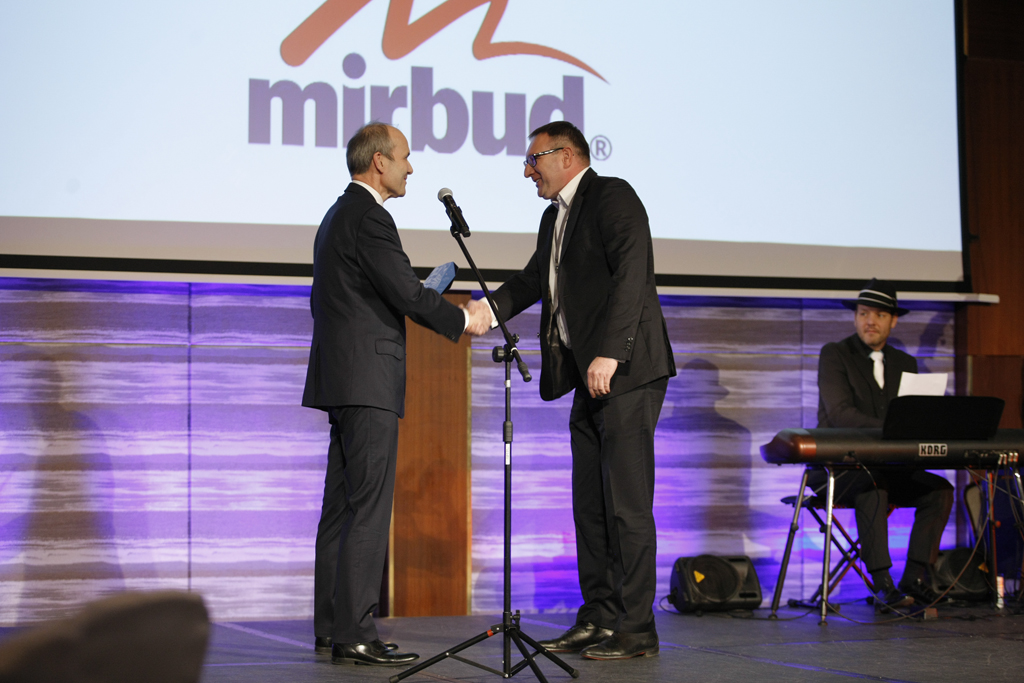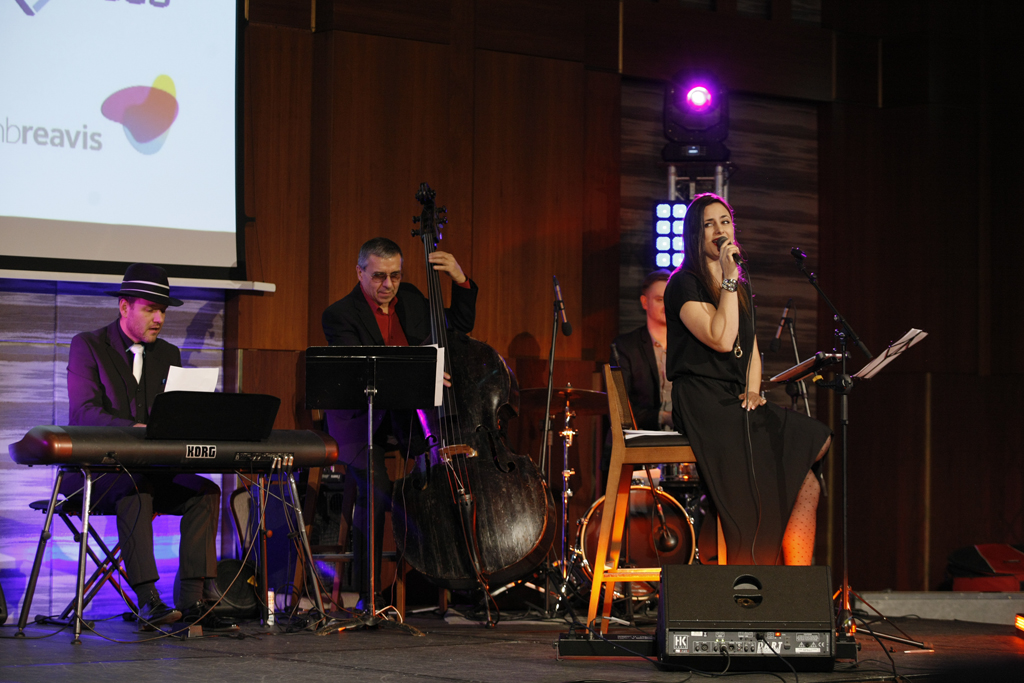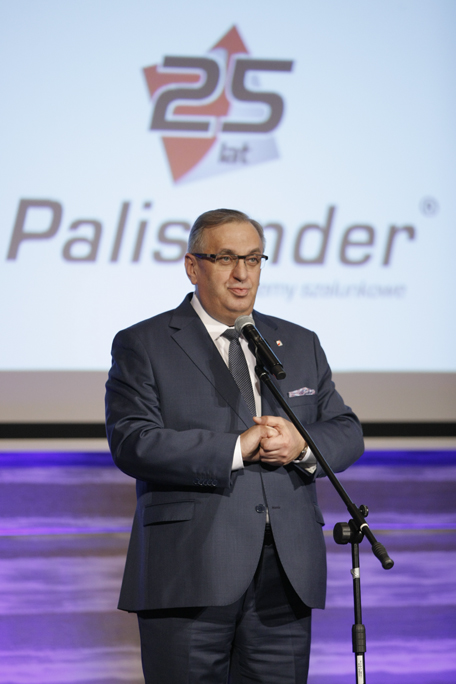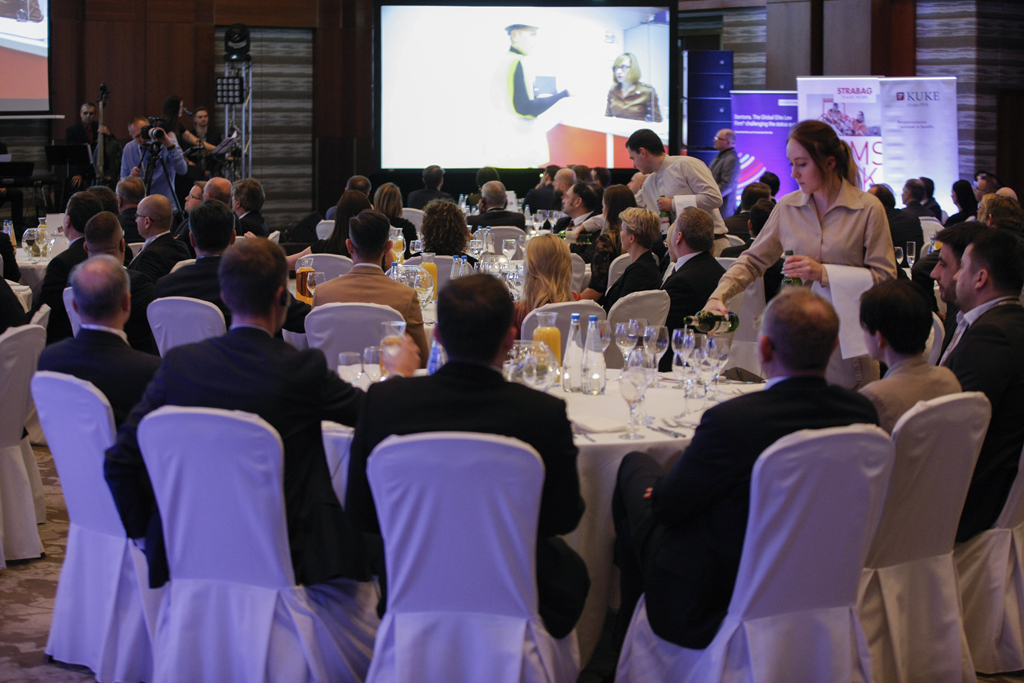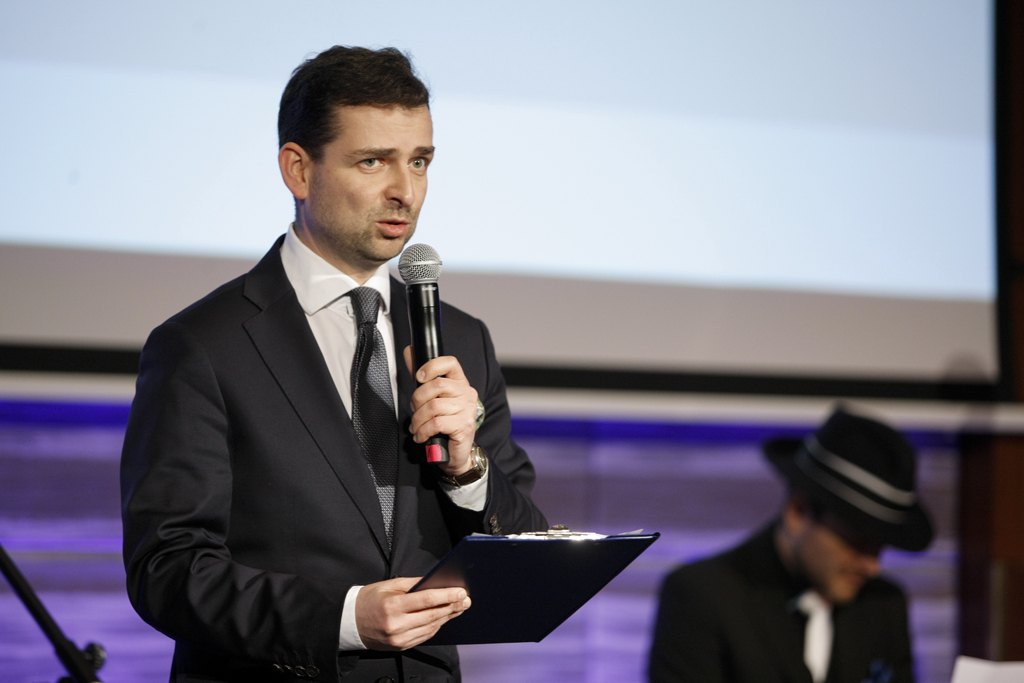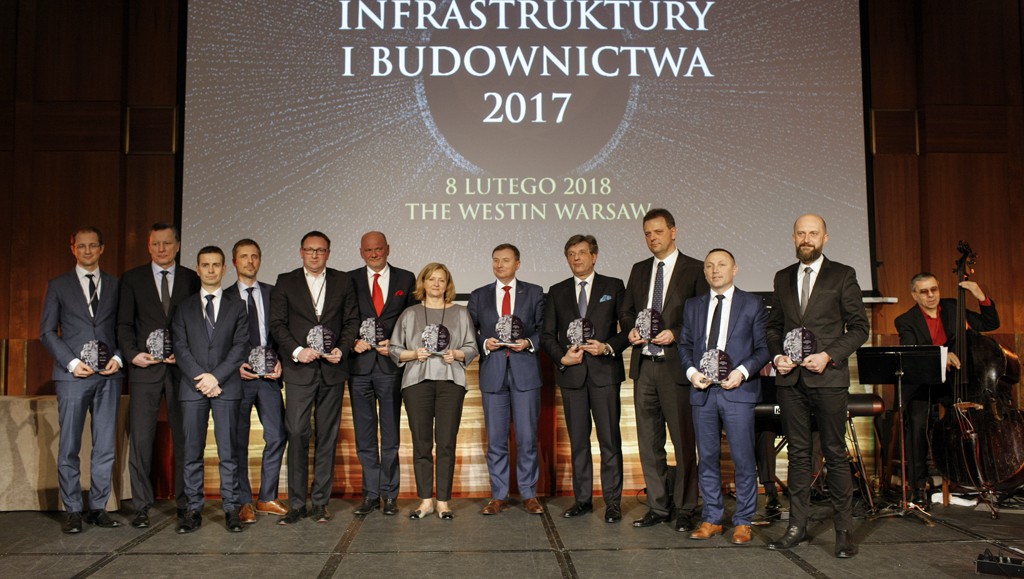
Four discussion panels, twenty eight speakers, almost seven hours of discussion, and eleven winners of our prestigious statuettes – this is just a brief description of the 9th edition of the “Polish Infrastructure and Construction” conference and the formal gala of “Infrastructure and Construction Diamonds”, which took place on February 8 at The Westing hotel in Warsaw.
The conference’s Guest of Honor was Marek Chodkiewicz, Undersecretary of State at the Ministry of Infrastructure, who gave a speech on the implementation of the National Roads Construction Program for the years 2014-2023. “We currently have over 3.5 thousand km of expressways and motorways, but we still have a lot of work ahead of us. Unfortunately, we will not be able to implement all tasks included in the program, so our priority is to connect the most important investments into a coherent road network” – said the Deputy Minister.
The main topic of the first panel was the future of road investments and the effectiveness of public–private partnerships. The panel was moderated by Anna Flaga-Martynek (WKB Wierciński, Kwieciński, Baehr law firm). Iwona Stępień-Kotlarek, Deputy General Director of National Roads and Motorways, began the panel with a strong statement that there are no companies on the Polish market which would be able to face the challenges associated with the implementation of very large contracts and organization of the entire investment process, hence the tendency to create consortia. Jerzy Wacławczyk (Strabag) talked about the cooperation between ordering parties and contractors, pointing out that, regardless of the public procurement law, these relationships are good and the implementation of a single European document for public procurement and the announced digitization will constitute a positive change facilitating cooperation. Mr. Wacławczyk was accompanied by Deputy Minister Chodkiewicz, who stated that digitization is a key condition for improving communication between contractors and ordering parties and facilitating the submission of tender offers. Paweł Lider (Eurovia Polska) talked about good practices for the effective modernization of infrastructure with the use of PPP, based on the example of investments implemented in Slovakia and Germany. “PPP is an immense opportunity for the development of infrastructural projects, and it seems necessary to increase the involvement of private capital” – said Andrzej Gienieczko (Egis Projects Polska). Krzysztof Mleczak (Exito Broker) mentioned bank and insurance guarantees as a form of securing against risk associated with the implementation of infrastructural investments. According to him, the insurance market constitutes a good alternative to banks. Robert Dębecki (KUKE) continued on the issue of financial security and pointed out that the number of bank and insurance guarantees is increasing – together with the growing awareness of their users, which results in a higher number of claims.
Registered video material-Panel 1: Infrastructure today and tomorrow
The second discussion panel was devoted, among others, to the stability of contractors in the investment process. The debate was moderated by Wiktor Piwkowski (Polish Association of Construction Engineers and Technicians), who began by comparing the investment process to a pyramid with certain features of a wobbly house of cards, where the investor is at the top and contractors, subcontractors, and suppliers towards the bottom. The discussion also touched upon the implementation of PPP investment as an alternative to the diminishing EU funding, brought up by Stanisław Żmijan, Deputy Chairman of the Parliamentary Committee of Infrastructure. He emphasized that the atmosphere in the area of linear investments is not conducive to the implementation of PPP solutions. Mirosław Józefczuk (Warbud SA) stated that PPP is an excellent formula providing the state administration with access to the funds and know-how of private companies. “Investments are managed more effectively by private partners than public institutions” – said Mirosław Józefczuk. Andrzej Czapczuk (F.B.I. TASBUD) noticed the problem associated with workforce deficiency, which may hamper the development of investments in the case of large contractors, while Piotr Staniszewski (Dentons) talked about the legal policy of the state and the need to create model regulations to standardize the investment and construction process. The issue of the continuity of investment implementation was taken up by Andrzej Puta (Euler Hermes), who claimed that attention should be paid to financial liquidity and creation of a mechanism which would help subcontractors get their remuneration quicker. “The main problem of the Polish construction market is financial liquidity, or lack thereof” – said Andrzej Puta.
Registered video material-Panel 2: The direction and dynamics of investment development
The extension of the second line of the Warsaw subway and the development and modernization of the railway network were the main topics of the third discussion panel, moderated by dr inż. Andrzej Żurkowski (Railway Research Institute). Renata Kaznowska, Deputy Mayor of Warsaw, stated that the mobility policy of Warsaw is focused on public transportation, which is currently used by approx. 57% of the city’s population. The actions of the City Hall associated with the modernization of the transportation network are aimed at increasing this share to 65%. Dr Libor Lochman (Community of European Railway and Infrastructure Companies) argued that railway networks are key for European public transportation. As a person frequently visiting Poland, he saw a definite improvement in the standard and quality of Polish rail transportation. Arnold Bresch (PKP Polskie Linie Kolejowe), talked about the risks associated with the implementation of the national railway program. He assured that PKP searches for optimum solutions to problems indicated by contractors well in advance. The extension of the second subway line was also mentioned by Dariusz Kostaniak (Metro Warszawskie), who explicitly stated that the subway is a complex investment requiring an enormous number of certificates, permits, and regulations, which is why its construction is taking so long. Jerzy Obrębski (Szybka Kolej Miejska) noticed that the development of SKM depends on the modernization of the national rail infrastructure, while Dariusz Grajda (Koleje Mazowieckie) talked about increasing the capacity of trains by investing in double-deck trains.
Registered video material-Panel 3: Sustainable public transportation
The last panel, devoted to innovation in construction, was moderated by Prof. Leszek Rafalski (Road and Bridge Research Institute), who opened the discussion by comparing the expenses of selected countries on research and development, proving that Poland spends less than 1% of its GPD on R&D. Jean-Andre Barbosa (Future Pipe Industries) talked about the importance of innovation, sustainable development, as well as technological and qualitative progress, which will enable the implementation of eco-friendly products. According to Łukasz Marcinkiewicz (Lafarge, LH Engineering) market stability and cooperation enabling long-term investment planning constitute the basis for innovation. Only this can guarantee the completion of the entire process – from a laboratory idea to implementation. Jan Styliński (Polish Association of Construction Industry Employers, PZPB) said that cost is still the decisive factor on the construction market, which significantly limits opportunities for implementing innovations of any kind. “We need a redefinition of the price criterion and a long-term outlook on investment, from the point of view of the entire investment life-cycle” – said the President of PZPB. Leszek Sławiński (BOLIX) mentioned the challenges faced by manufacturers of construction chemicals. He pointed out that these include changing legislation and requirements associated with adjusting products to the pace of investment development, work time, and number of contracting companies. Waldemar Wójcik (Strabag) noticed that entrepreneurs on the construction market need to take into account a long-term perspective of product life. In his summary, the moderator argued that it is advisable to devote more funding to research associated with innovations in construction, because the industry is an important driving force for the economy.
The event also featured several speeches, including a presentation of a Guest of Honor, Dr Libor Lochman, on the influence of infrastructure on economic development. Tomasz Korczyński, Counsel at Dentons law firm, gave a speech on the practical, legal and organizational aspects of the implementation of PPP project in Poland, while the idea of municipal railways as an element of sustainable public transportation was the main topic analyzed by Dariusz Grajda, Member of the Management Board of Koleje Mazowieckie.
Registered video material-Panel 4: Innovation in construction – how to meet the expectations of tomorrow?
The event concluded with the “Infrastructure and Construction Diamonds” awards gala, which was formally opened by Prof. Michał Kleiber, Chairman of the Club’s Council, and Jan Styliński, Head of the Jury and President of the Management Board of the Polish Association of Construction Industry Employers. For the fourth time the Jury awarded and honored the best implementations, projects, and companies which significantly contributed to the development of the Polish infrastructure and construction. This year 11 diamonds were awarded in 9 categories.
WINNERS OF THE PRESTIGIOUS “INFRASTRUCTURE AND CONSTRUCTION DIAMONDS”:
REALIZATION OF THE YEAR: RESIDENTIAL/COMMERCIAL/INDUSTRIAL BUILDINGS – Mirbud – Gliwice Hall
REALIZATION OF THE YEAR: ROAD INFRASTRUCTURE – Strabag – Bridge on the S7 expressway in Kraków
REALIZATION OF THE YEAR: RAIL INFRASTRUCTURE – Budimex and Ferrovial Agroman syndicate – Kraków Zabłocie – Kraków Krzemionki rail link
PROJECT OF THE YEAR – Studio Architektoniczne Kwadrat – Museum of the Second World War, Gdańsk
CONSTRUCTION COMPANY OF THE YEAR – Erbud
TECHNOLOGY LEADER – Strabag
SECURITY LEADER – Skanska
Organizer: Executive Club
Honorary Patronage: Community of European Railway and Infrastructure Companies (CER), Polish Chamber of Civil Engineers, Polish Road Congress, Polish Association of Construction Industry Employers, Road and Bridge Research Institute, Polish Economic Chamber of Road Building, Polish Office of Rail Transportation, Polish Association of Construction Engineers and Technicians, Railway Research Institute
Main Partner: Dentons, Lafarge Holcim
Gold Partners: Future Pipe Industries, Strabag
Partners: BOLIX, Egis Projects Polska, ERBUD, Eurovia Polska, Euler Hermes, Exito Broker, IDS-BUD, Koleje Mazowieckie, KUKE, Metro Warszawskie, Szybka Kolej Miejska, Warbud, WKB Wierciński, Kwieciński, Baehr
Gala Partners: BASF Polska, Kajima Poland, Oknoplast, Palisander
Media Patrons: Biznes Alert, Budnet.pl, Budnews.pl, Budowa.org, Budownictwo.org, BudownictwoInżynieryjne.pl, Builder, Business&Prestige, CEO.com.pl, CoNaDrogach.pl, e-biurowce.pl, Edroga.pl, Express Przemysłowy, Forum Budowlane, Forum PPP – magazyn inwestycji publicznych, GeneralniWykonawcy.pl, Infrastruktura-Inframedia, Info Rail, Inteligentny Budynek, Kompas Inwestycji, Magazyn Kruszywa, Magazyn Autostrady, Materiały Budowlane, Magazyn Mosty, Nieruchomości.biz, Nowoczesne Budownictwo Inżynieryjne, PMR, Polish Market, Rynek Infrastruktury, Rynek Inwestycji, Via Expert, Warsaw Business Journal


